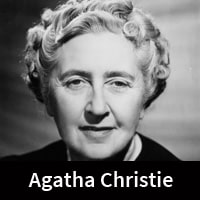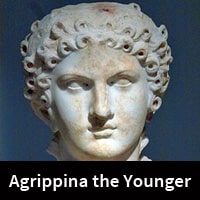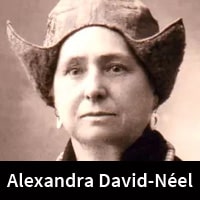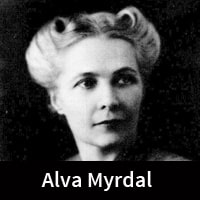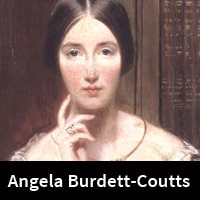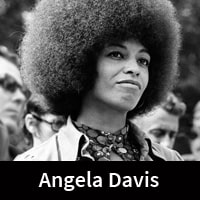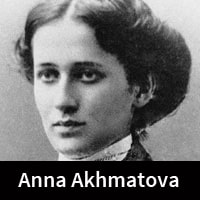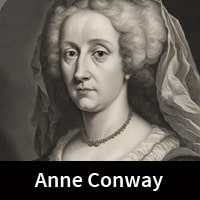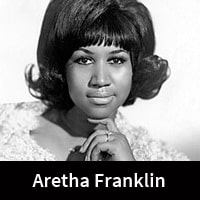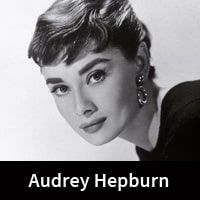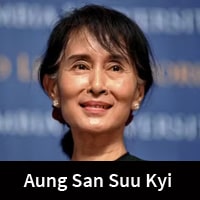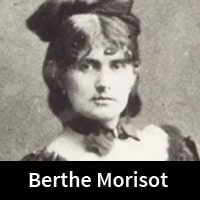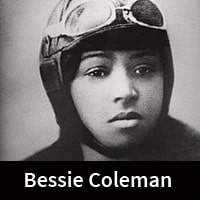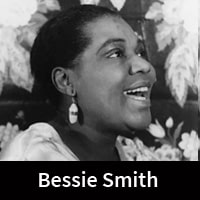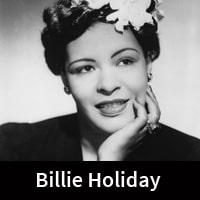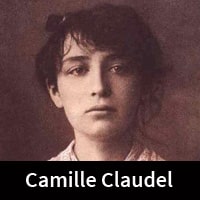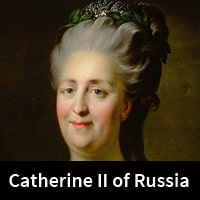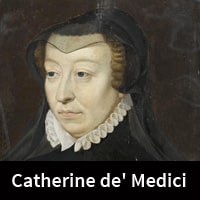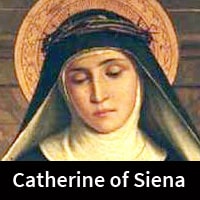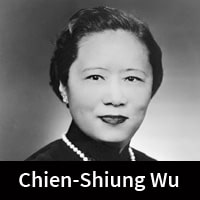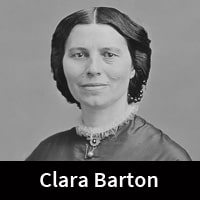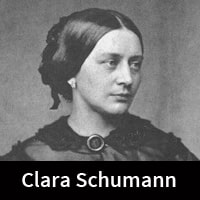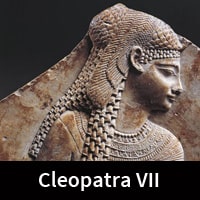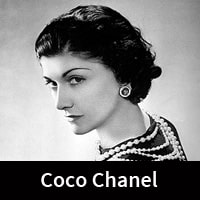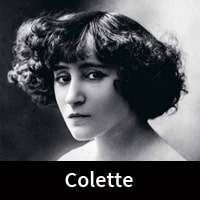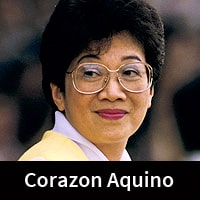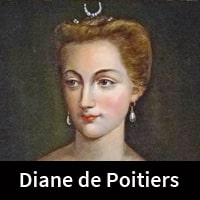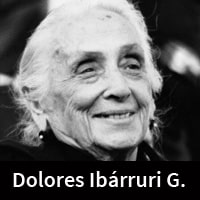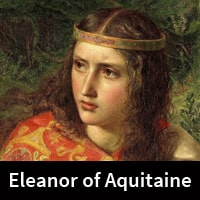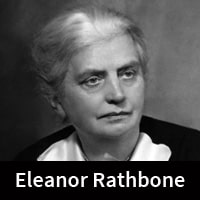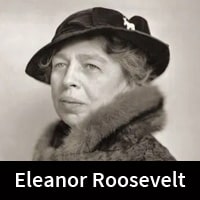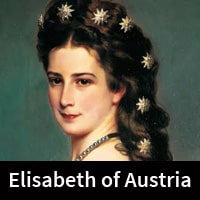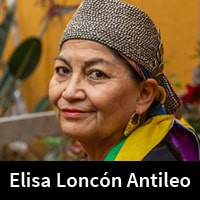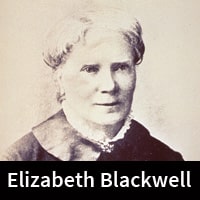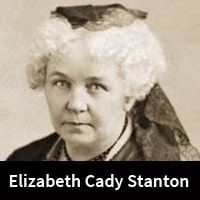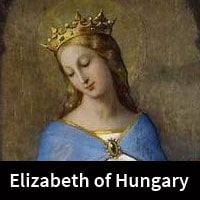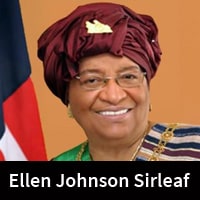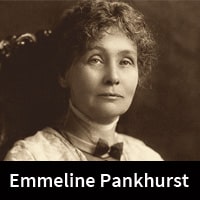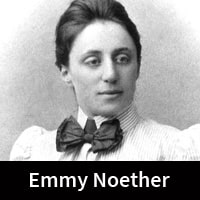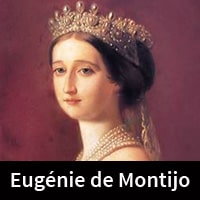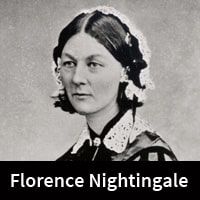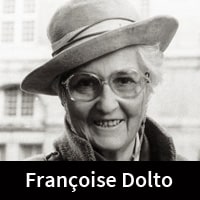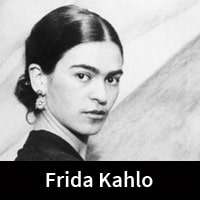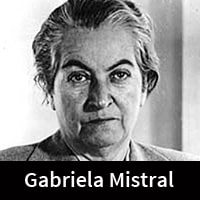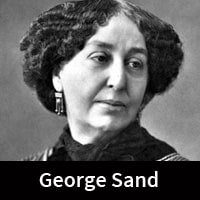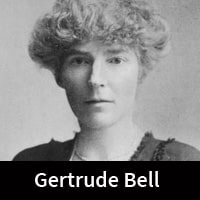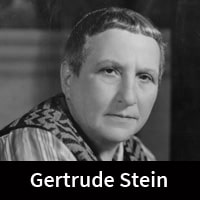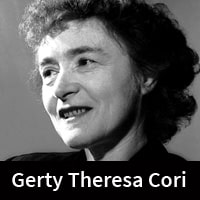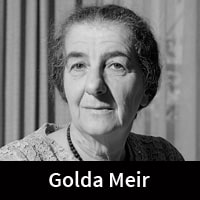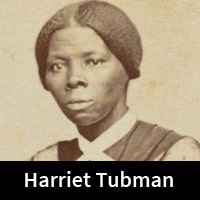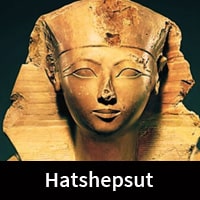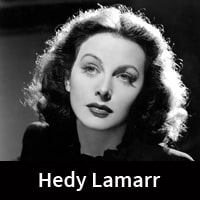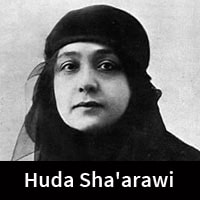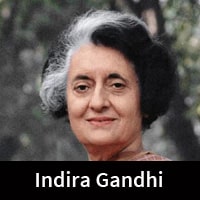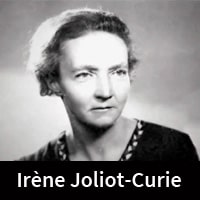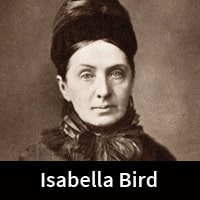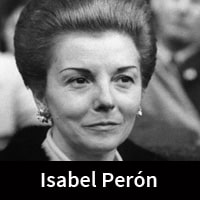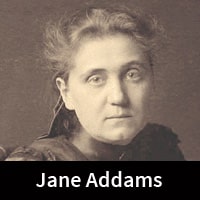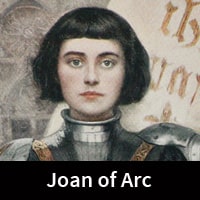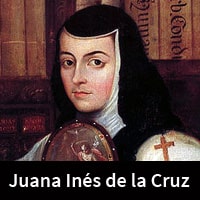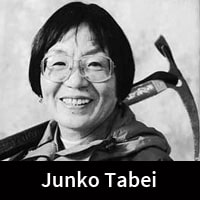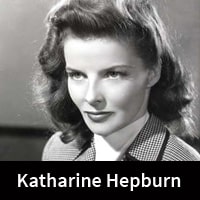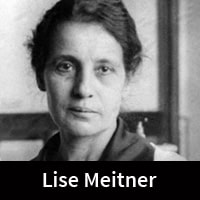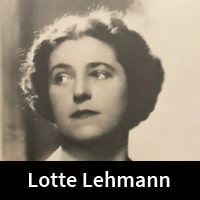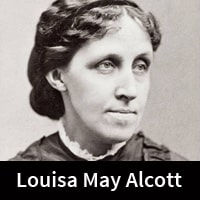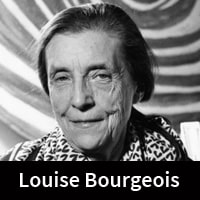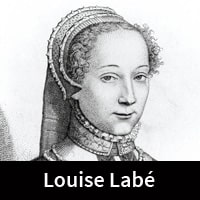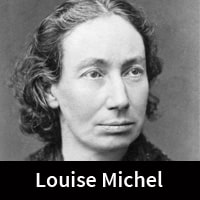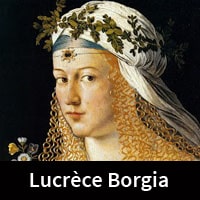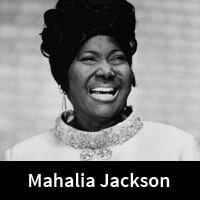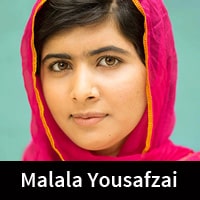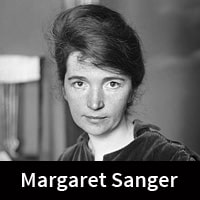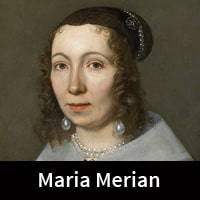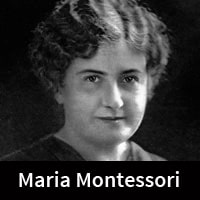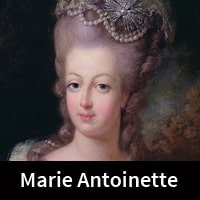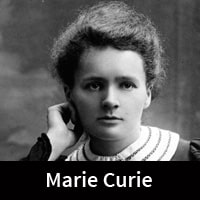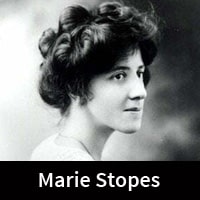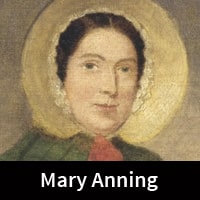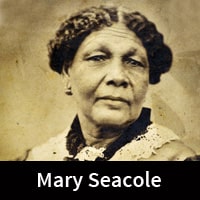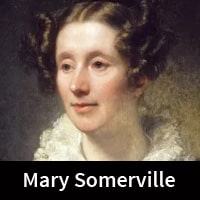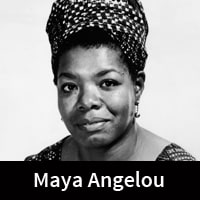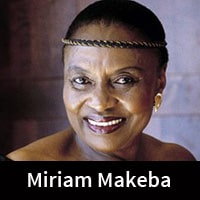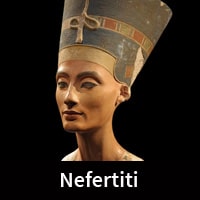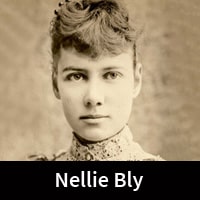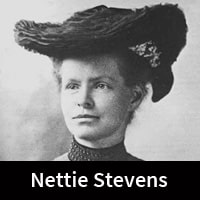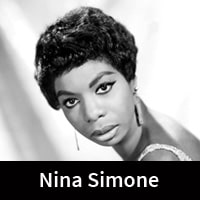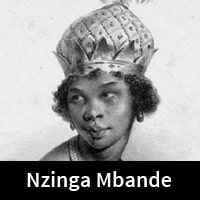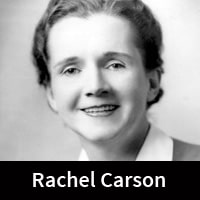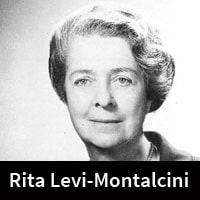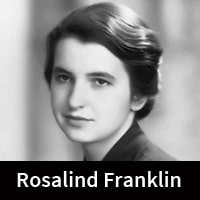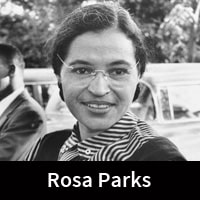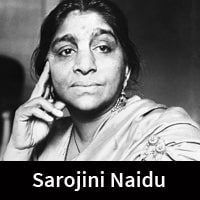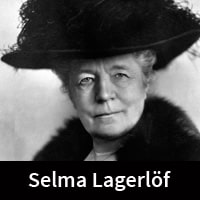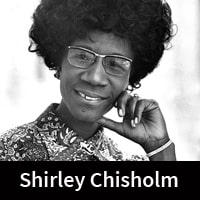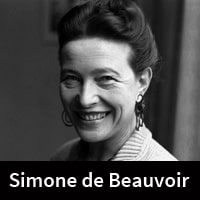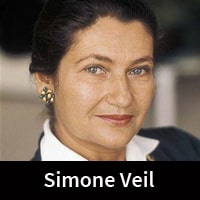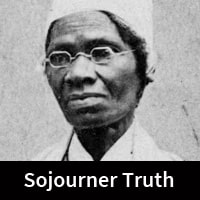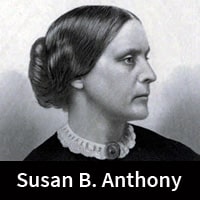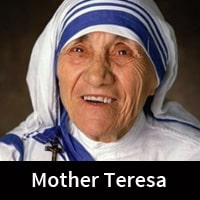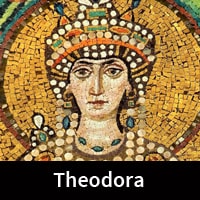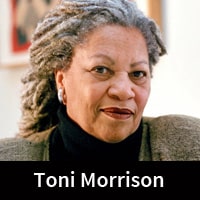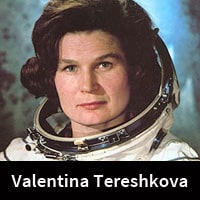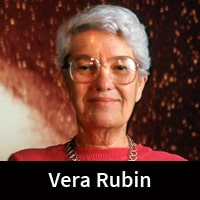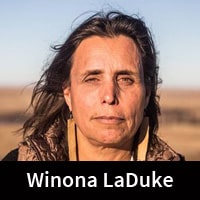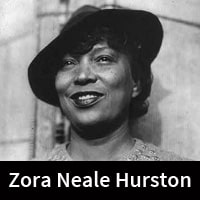Printable Cards of the most Famous women in history
Print the cards of the Famous women
Discover over 200 famous women who have made history. Each card features a photo and the name of the personality.
If you're curious and want to learn about their achievements, check out the alphabetical list of these women below to find out more about each of them.
Print the PDF below in duplicate (to get pairs of identical women), then cut out each card to create a homemade Memory game.
Note: Before cutting out the printed page, you may want to glue it to a cardboard backing to make the cards sturdier and more durable.
Find all the women above in our online Matching Game. In this game, you have to match the pairs of identical cards. You can play alone or against the computer and choose the level of difficulty.
PLAY THE MATCHING GAMEThe Most famous women who made history
Throughout the centuries, many women have left their mark on history by revolutionizing various fields. In science, some have made groundbreaking discoveries that transformed our understanding of the world, often breaking the barriers imposed by their time. In politics, others have led nations, fought for equality, and shaped reforms that changed society. In the arts and literature, brilliant minds have captured the complexity of humanity through their works, influencing entire generations. Some have made history in sports by pushing the limits of performance and paving the way for greater equality in competitions. Others have dedicated their lives to defending human rights, fighting against injustices, and inspiring change. No matter their field, they have all contributed to advancing the world and continue to be a source of inspiration.
Some of these women among many others
Throughout history, many women have left their mark on the world through their extraordinary achievements. Cleopatra, Queen of Egypt, wielded impressive strategic and political power. Joan of Arc, the French heroine, led her army to victory before being canonized. Marie Curie, a pioneer in physics and chemistry, became the first woman to win a Nobel Prize and the only person to receive two in different fields. Rosa Parks, by refusing to give up her seat on a segregated bus, became an iconic figure of the civil rights movement in the United States. Frida Kahlo, a Mexican artist, revolutionized art by incorporating her personal experiences and culture into her work. More recently, figures like Malala Yousafzai, an advocate for girls' education, and Michelle Obama, dedicated to social and educational causes, continue to inspire millions around the world. Each of these women has left an indelible mark on history and continues to inspire future generations.
Alphabetical List of over 200 Famous Women
Here is a non-exhaustive list of the most famous women in history, arranged in alphabetical order (by first name). You will find their photos (or images depending on the era), their names, and a short description explaining in which field and how they changed the course of history.
If you are looking for a specific woman, find her more easily by clicking on the letter of the alphabet corresponding to the first letter of her first name:
-
![Ada Lovelace Ada Lovelace]()
Ada Lovelace (1815-1852)
Ada Lovelace, often regarded as the first computer programmer, was an English mathematician and writer. She collaborated with Charles Babbage on his design for the Analytical Engine, a precursor to modern computers. Ada envisioned the machine's potential to process not just numbers but also complex symbols, laying the groundwork for computational science. Her visionary notes included what is considered the first algorithm designed for a machine. Celebrated as a pioneer for women in STEM, her legacy continues to inspire generations of scientists and innovators.
-
![Ada Yonath Ada Yonath]()
Ada Yonath (1815-1852)
Ada Yonath is an Israeli crystallographer and Nobel laureate in Chemistry (2009) for her groundbreaking work on the structure and function of the ribosome. Her research provided crucial insights into how genetic information is translated into proteins, advancing medical and biological sciences. She faced significant challenges as a woman in science but persevered with determination. Yonath’s achievements have cemented her as a trailblazer in molecular biology and a role model for aspiring scientists worldwide.
-
![Agatha Christie Agatha Christie]()
Agatha Christie (1891-1976)
Agatha Christie, known as the "Queen of Crime", was a prolific British author famous for her detective novels, short stories, and plays. She created iconic characters like Hercule Poirot and Miss Marple, and her works, including Murder on the Orient Express and The Murder of Roger Ackroyd, remain among the best-selling books of all time. With over 60 novels, Christie revolutionized the mystery genre with intricate plots and suspenseful storytelling. Her legacy endures as one of the most celebrated writers in literary history.
-
![Agrippina the Younger Agrippina the Younger]()
Agrippina the Younger (15–59 AD)
Agrippina the Younger was a prominent figure in ancient Rome, known for her political ambition and influence. Sister to Emperor Caligula, wife of Emperor Claudius, and mother of Emperor Nero, she played a pivotal role in Roman imperial politics. Agrippina was a master of court intrigue, reputedly orchestrating the ascension of Nero to the throne. Though vilified by ancient sources, modern historians recognize her as a shrewd and powerful woman navigating the treacherous world of Roman power dynamics.
-
![Alexandra David-Néel Alexandra David-Néel]()
Alexandra David-Néel (1868-1969)
Alexandra David-Néel was a French explorer, writer, and spiritualist, renowned for her travels in Asia, particularly Tibet. She was the first European woman to reach the forbidden city of Lhasa in 1924, disguised as a beggar. A scholar of Buddhism, her works introduced Tibetan culture and spirituality to Western audiences. David-Néel’s adventurous spirit and intellectual pursuits made her an icon of exploration and a trailblazer for women travelers.
-
![Alva Myrdal Alva Myrdal]()
Alva Myrdal (1902–1986)
A Swedish sociologist, diplomat, and politician, Alva Myrdal was a prominent advocate for disarmament and social welfare reform. She co-authored influential works on social policy with her husband, Gunnar Myrdal, and helped shape Sweden’s welfare state. Myrdal served as Sweden's delegate to the United Nations and was a leading voice in nuclear disarmament, earning the Nobel Peace Prize in 1982. She remains a symbol of progressive social change and global peace efforts.
-
![Amelia Earhart Amelia Earhart]()
Amelia Earhart (1897-1937)
Amelia Earhart was an American aviator and the first woman to fly solo across the Atlantic Ocean in 1932. Her daring spirit and groundbreaking achievements in aviation made her an international icon of female empowerment. Earhart vanished in 1937 during an attempt to circumnavigate the globe, sparking enduring mysteries about her disappearance. She inspired generations to break barriers and reach for the skies.
-
![Angela Burdett-Coutts Angela Burdett-Coutts]()
Angela Burdett-Coutts (1814–1906)
Angela Burdett-Coutts was a renowned British philanthropist and one of the wealthiest women of her time. Known for her generosity, she used her wealth to support education, housing reform, and public health initiatives. A close friend of Charles Dickens, she funded numerous charitable projects, including housing for the poor and improving sanitation in London. In recognition of her work, Queen Victoria granted her a peerage in 1871, making her Baroness Burdett-Coutts.
-
![Angela Davis Angela Davis]()
Angela Davis (1944-present)
An American political activist, scholar, and author, Angela Davis is a prominent figure in the fight for civil rights, feminism, and prison reform. A former member of the Black Panther Party, she gained international attention in the 1970s when she was falsely accused of a crime and later acquitted. Davis has since become an influential academic, continuing her advocacy for racial and social justice through her writings and public speaking.
-
![Angela Merkel Angela Merkel]()
Angela Merkel (1954-present)
Angela Merkel is a German politician who served as Chancellor of Germany from 2005 to 2021. A trained scientist with a background in quantum chemistry, Merkel became the first woman to lead Germany. She is known for her pragmatic leadership, her role in navigating the European Union through crises, and her commitment to climate action. Merkel remains a symbol of stability and competence in global politics.
-
![Anna Akhmatova Anna Akhmatova]()
Anna Akhmatova (1889-1966)
Anna Akhmatova was a Russian poet whose works are celebrated for their lyrical beauty and emotional depth. Living through the tumultuous Soviet era, she faced censorship and personal loss but continued to write about love, suffering, and resilience. Her masterpiece, Requiem, is a poignant reflection on Stalinist repression. Akhmatova remains one of Russia’s most revered literary figures.
-
![Anna Freud Anna Freud]()
Anna Freud (1895-1982)
The youngest daughter of Sigmund Freud, Anna Freud was a pioneering psychoanalyst who specialized in child psychology. She developed theories on defense mechanisms and worked to apply psychoanalysis to education and child development. Her innovative methods and dedication to understanding children’s minds made her a key figure in modern psychology.
-
![Anne Conway Anne Conway]()
Anne Conway (1631-1679)
Anne Conway was an English philosopher whose work challenged Cartesian dualism. Her treatise, The Principles of the Most Ancient and Modern Philosophy, presented a monistic view of reality, emphasizing unity and interconnectedness. Influential in her time, she corresponded with prominent thinkers such as Henry More. Her ideas prefigured later developments in metaphysics and inspired subsequent philosophical inquiries.
-
![Anne of Brittany Anne of Brittany]()
Anne of Brittany (1477–1514)
Anne of Brittany was the Duchess of Brittany and twice queen consort of France, marrying Kings Charles VIII and Louis XII. She worked to preserve Brittany's autonomy while fostering the arts and education. A patron of Renaissance culture, she commissioned illuminated manuscripts and supported scholars. Anne’s political acumen and cultural contributions left a lasting mark on French and Breton history.
-
![Anne Frank Anne Frank]()
Anne Frank (1929-1945)
Anne Frank was a Jewish teenager whose diary became a symbol of resilience during the Holocaust. Hiding with her family in Amsterdam, she chronicled her life in a secret annex, expressing hope and humanity amidst persecution. Tragically, she died in a concentration camp, but her diary was published posthumously, shedding light on the horrors of the Holocaust and inspiring generations worldwide.
-
![Aphra Behn Aphra Behn]()
Aphra Behn (1640-1689)
Aphra Behn was a trailblazing English writer and one of the first women to earn a living through literature. Her works, including plays and novels, explored themes of love, politics, and power. Her novel Oroonoko, about an enslaved African prince, is considered an early anti-slavery narrative. Behn's legacy as a pioneering female writer broke barriers in the male-dominated literary world.
-
![Aretha Franklin Aretha Franklin]()
Aretha Franklin (1942-2018)
Aretha Franklin, the "Queen of Soul" was an American singer celebrated for her powerful voice and iconic songs like Respect, Natural Woman and Think. Beyond her music, she was a civil rights advocate, using her platform to support equality and social justice. Franklin won 18 Grammy Awards and was the first woman inducted into the Rock and Roll Hall of Fame, leaving an indelible mark on music and culture.
-
![Artemisia Gentileschi Artemisia Gentileschi]()
Artemisia Gentileschi (1593-1653)
Artemisia Gentileschi was an Italian Baroque painter renowned for her powerful depictions of women in dramatic, often biblical, scenes. Overcoming personal tragedy and societal barriers, she gained recognition as one of the first women to achieve success in the art world. Her masterpiece, Judith Slaying Holofernes, exemplifies her bold, emotive style and remains a testament to her resilience and talent.
-
![Audrey Hepburn Audrey Hepburn]()
Audrey Hepburn (1929–1993)
Audrey Hepburn was a British actress and humanitarian, celebrated for her iconic roles in films like Breakfast at Tiffany’s and Roman Holiday. Known for her elegance and charm, she became a style icon of the 20th century. Hepburn dedicated her later years to humanitarian work as a UNICEF Goodwill Ambassador, advocating for children in impoverished regions around the world.
-
![Aung San Suu Kyi Aung San Suu Kyi]()
Aung San Suu Kyi (1945-present)
Aung San Suu Kyi is a Burmese political leader and Nobel Peace Prize laureate. Her nonviolent struggle against Myanmar’s military dictatorship made her an international symbol of democracy and human rights. After years under house arrest, she led her party to electoral victories but faced criticism for her handling of the Rohingya crisis. Her legacy is both inspirational and contentious.
-
![Barbara McClintock Barbara McClintock]()
Barbara McClintock (1902-1992)
Barbara McClintock was an American geneticist and cytogeneticist who discovered "jumping genes" (transposable elements), transforming our understanding of genetics. Her groundbreaking work on maize genetics earned her the Nobel Prize in Physiology or Medicine in 1983. Despite facing initial skepticism, McClintock's perseverance and pioneering research laid the foundation for modern genetic studies, earning her lasting recognition in science.
-
![Barbra Streisand Barbra Streisand]()
Barbra Streisand (1942-present)
Barbra Streisand is an American singer, actress, and filmmaker whose career spans six decades. Known for her powerful voice and versatility, she is one of the best-selling music artists of all time, with hits like People, Woman in Love and The Way We Were. A two-time Academy Award winner, Streisand has also championed philanthropy, supporting education, women's rights, and climate change initiatives.
-
![Benazir Bhutto Benazir Bhutto]()
Benazir Bhutto (1953-2007)
Benazir Bhutto was the first woman to lead a Muslim-majority nation as Prime Minister of Pakistan. Educated at Oxford and Harvard, she served two terms in office, championing economic reform and women's empowerment. Her leadership was marked by challenges, including political opposition and corruption allegations. Assassinated in 2007, Bhutto remains a symbol of resilience and progress in Pakistani politics.
-
![Bertha von Suttner Bertha von Suttner]()
Bertha von Suttner (1843–1914)
An Austrian pacifist and novelist, Bertha von Suttner was the first woman to receive the Nobel Peace Prize in 1905. Her influential novel Lay Down Your Arms inspired the peace movement, advocating for disarmament and international cooperation. A close confidante of Alfred Nobel, she helped inspire the creation of the Nobel Peace Prize. Von Suttner remains a pioneer of global pacifism.
-
![Berthe Morisot Berthe Morisot]()
Berthe Morisot (1841–1895)
Berthe Morisot was a French painter and a leading figure in the Impressionist movement. Known for her light brushwork and use of color, her works often depicted domestic life, landscapes, and portraits. Morisot broke barriers for women in art by exhibiting alongside male contemporaries like Monet and Degas. Her contributions to Impressionism continue to be celebrated for their elegance and innovation.
-
![Bessie Coleman Bessie Coleman]()
Bessie Coleman (1892-1926)
Bessie Coleman was the first African American and Native American woman to earn a pilot's license. Facing racial and gender barriers in the U.S., she trained in France, returning to perform daring airshows as "Queen Bess". An advocate for aviation equality, Coleman inspired generations. Tragically, she died in a plane accident at 34, but her legacy as a trailblazer endures.
-
![Bessie Smith Bessie Smith]()
Bessie Smith (1894–1937)
Bessie Smith, the "Empress of the Blues", was one of the greatest blues singers of the 1920s and 1930s. Known for her powerful voice and emotional depth, her songs, like Downhearted Blues, addressed love, hardship, and resilience. Smith influenced generations of artists and remains a pivotal figure in American music history. Her life was tragically cut short in a car accident.
-
![Bette Davis Bette Davis]()
Bette Davis (1908–1989)
Bette Davis was a legendary American actress renowned for her intense performances and commanding presence. Starring in classics like All About Eve and Jezebel, she won two Academy Awards and redefined Hollywood’s portrayal of complex women. Known for her sharp wit and perseverance, Davis’s career spanned five decades, cementing her status as one of cinema’s most enduring icons.
-
![Billie Holiday Billie Holiday]()
Billie Holiday (1915–1959)
Billie Holiday, nicknamed "Lady Day," was an American jazz singer celebrated for her soulful voice and emotional expression. Songs like Strange Fruit, a haunting protest against lynching, showcased her artistry and activism. Despite a tumultuous personal life, her contributions to jazz and blues left an indelible mark on music. She remains a symbol of resilience and raw talent.
-
![Boudica (or Boudicca) Boudica (or Boudicca)]()
Boudica (1st century AD)
Boudica was a queen of the Iceni tribe who led a major uprising against Roman rule in Britain. After her people were mistreated by the Romans, she united various tribes to fight for their freedom, capturing key cities before being ultimately defeated. Boudica’s courage and leadership made her a symbol of resistance and British national pride.
-
![Buchi Emecheta Buchi Emecheta]()
Buchi Emecheta (1944-2017)
Buchi Emecheta was a Nigerian-born novelist whose works explored themes of feminism, colonialism, and independence. Her books, including The Joys of Motherhood and Second-Class Citizen, highlighted the struggles of African women balancing tradition and modernity. Emecheta’s personal journey, from single motherhood in London to literary acclaim, inspired readers worldwide. She remains a significant voice in African literature.
-
![Camille Claudel Camille Claudel]()
Camille Claudel (1864-1943)
Camille Claudel was a French sculptor and artist who significantly contributed to modern sculpture. A student and collaborator of Auguste Rodin, her works, such as The Waltz and The Age of Maturity, reflect deep emotion and innovation. Despite her immense talent, her career was overshadowed by her tumultuous relationship with Rodin and societal expectations. She spent the last 30 years of her life in an asylum, and her legacy as a trailblazing artist has since been revived.
-
![Catherine II of Russia Catherine II of Russia]()
Catherine II of Russia (1729–1796)
Also known as Catherine the Great, she was Empress of Russia from 1762 to 1796, making her the country’s longest-ruling female leader. She implemented sweeping reforms in government, education, and the economy, bringing Russia into the Age of Enlightenment. Known for her intelligence and ambition, Catherine expanded Russian territory significantly. Her reign is remembered as a period of cultural and political growth.
-
![Catherine de' Medici Catherine de' Medici]()
Catherine de' Medici (1519-1589)
Catherine de' Médici was Queen of France as the wife of Henry II and a powerful regent for her sons during the 16th century. Renowned for her political acumen, she played a key role in navigating the French Wars of Religion. She supported the arts and was instrumental in introducing Italian Renaissance culture to France. Though controversial, Catherine remains a pivotal figure in French history.
-
![Catherine of Siena Catherine of Siena]()
Catherine of Siena (1347-1380)
Catherine of Siena was an Italian mystic, theologian, and one of the most influential figures of the Catholic Church. Known for her writings and spiritual leadership, she worked tirelessly to heal divisions within the Church, including persuading the Pope to return to Rome from Avignon. A Doctor of the Church, Catherine is revered for her deep piety and commitment to peace and reform.
-
![Celia Cruz Celia Cruz]()
Celia Cruz (1925-2003)
Celia Cruz, the "Queen of Salsa", was a Cuban-American singer known for her powerful voice and electrifying performances. With hits like La Vida Es un Carnaval, she popularized salsa music worldwide. Her vibrant style and cry of "¡Azúcar!" became iconic. Cruz's career spanned six decades, earning her numerous awards and cementing her as a global cultural icon.
-
![Charlotte Corday Charlotte Corday]()
Charlotte Corday (1768-1793)
Charlotte Corday was a French revolutionary famous for assassinating Jean-Paul Marat, a radical leader during the Reign of Terror. Believing her act would restore peace, she was arrested and guillotined at 25. While controversial, Corday’s bold actions and principled motives have made her a lasting figure in the history of the French Revolution.
-
![Chien-Shiung Wu Chien-Shiung Wu]()
Chien-Shiung Wu (1912-1997)
Chien-Shiung Wu was a Chinese-American physicist whose groundbreaking work in nuclear physics earned her the nickname "First Lady of Physics". Her famous Wu experiment disproved the conservation of parity, a fundamental principle in physics, earning her colleagues a Nobel Prize. Wu’s contributions to science were monumental, breaking barriers for women in STEM fields.
-
![Christine de Pizan Christine de Pizan]()
Christine de Pizan (1364-1430)
Christine de Pizan was a French poet and writer, widely regarded as one of the first feminists in history. Born in Italy and raised in France, she wrote for the courts of King Charles V and King Charles VI. She is best known for her work The Book of the City of Ladies (1405), in which she defends the worth and abilities of women against the misogynistic views of her time. Through her writings, she advocated for women's education and their active role in society.
-
![Clara Barton Clara Barton]()
Clara Barton (1821-1912)
Clara Barton was an American nurse, educator, and humanitarian who founded the American Red Cross. Known as the "Angel of the Battlefield" during the Civil War, she provided critical care to wounded soldiers. Her dedication to humanitarian aid transformed the field of emergency response and established a legacy of compassion and service.
-
![Clara Schumann Clara Schumann]()
Clara Schumann (1819-1896)
Clara Schumann was a German pianist, composer, and one of the most distinguished musicians of the Romantic era. Married to composer Robert Schumann, she was instrumental in promoting his works while developing her own successful career. Her compositions and virtuosic performances inspired many, making her a pioneer for women in classical music.
-
![Cleopatra VII Cleopatra VII]()
Cleopatra VII (69–30 BC)
Cleopatra VII was the last active ruler of the Ptolemaic Kingdom of Egypt. Renowned for her intelligence and political acumen, she allied with Julius Caesar and later Mark Antony to maintain her rule. Her reign ended with Egypt becoming a Roman province after her defeat by Octavian. Cleopatra remains a symbol of leadership, allure, and political strategy.
-
![Coco Chanel Coco Chanel]()
Coco Chanel (1883-1971)
Coco Chanel was a French fashion designer who revolutionized women’s fashion by introducing comfortable, elegant clothing, including the iconic Chanel No. 5 perfume and the little black dress. Her brand remains synonymous with timeless style and luxury. Chanel's impact extended beyond fashion, influencing 20th-century culture and redefining femininity.
-
![Colette Colette]()
Colette (1873-1954)
Colette, born Sidonie-Gabrielle Colette, was a celebrated French author, actress, and journalist. Renowned for her evocative and sensual prose, she penned classics such as Gigi and the Claudine series, often exploring themes of love, independence, and the complexities of human relationships. Colette’s bold and unconventional lifestyle, including her career as a stage performer and her open bisexuality, challenged societal norms of her era. She became the first woman to serve as president of the Académie Goncourt and was nominated for the Nobel Prize in Literature.
-
![Corazon Aquino Corazon Aquino]()
Corazon Aquino (1933–2009)
Corazon Aquino was the first female President of the Philippines, leading the country from 1986 to 1992. She became a symbol of democracy after the peaceful People Power Revolution ousted Ferdinand Marcos. Known for her integrity and humility, Aquino’s presidency marked a significant transition for the Philippines, inspiring movements for democratic reform worldwide.
-
![Coretta Scott King Coretta Scott King]()
Coretta Scott King (1927-2006)
Coretta Scott King was an American civil rights leader and the wife of Martin Luther King Jr. After his assassination, she continued his legacy, advocating for racial equality, economic justice, and world peace. A tireless activist in her own right, King founded the Martin Luther King Jr. Center for Nonviolent Social Change and played a pivotal role in the civil rights movement.
-
![Diana, Princess of Wales Diana, Princess of Wales]()
Diana, Princess of Wales (1961-1997)
Princess Diana, also known as Diana Spencer, was the first wife of Prince Charles and the mother of Princes William and Harry. Renowned for her charity work, particularly in the areas of AIDS, homelessness, and landmines, she became a global icon of compassion. Her elegant style and empathetic nature won her widespread admiration, but her tumultuous marriage to Prince Charles and tragic death in a car accident in 1997 led to public mourning. Diana's legacy continues to influence British royalty and humanitarian efforts.
-
![Diane de Poitiers Diane de Poitiers]()
Diane de Poitiers (1499-1566)
Diane de Poitiers was a French noblewoman who became the mistress of King Henry II of France. Known for her beauty and intelligence, she was a prominent political figure during the French Renaissance. Diane had significant influence at the French court, often acting as a trusted advisor. She was also known for her patronage of the arts and her role in the development of the Château de Chenonceau. Her enduring reputation is marked by her ability to maintain power in a male-dominated society.
-
![Dolly Parton Dolly Parton]()
Dolly Parton (1946-present)
Dolly Parton is a legendary American singer, songwriter, and businesswoman, best known for her contributions to country music. She has written iconic songs like Jolene, I Will Always Love You and 9 to 5 and achieved success both as a solo artist and with her group, the Smoky Mountain Boys. Beyond music, Dolly is a philanthropist, founding the Imagination Library, which promotes childhood literacy. Her charm, resilience, and influence on both the entertainment industry and social causes have made her a beloved figure worldwide.
-
![Dolores Ibárruri Gomez Dolores Ibárruri Gomez]()
Dolores Ibárruri Gomez (1895-1989)
Dolores Ibárruri Gómez, also known as "La Pasionaria", was a prominent Spanish communist leader, politician, and orator. Born in 1895, she became a key figure during the Spanish Civil War (1936–1939), inspiring resistance against Franco's forces with her rallying cry, ¡No pasarán! (They shall not pass!). A lifelong advocate for workers’ rights and anti-fascism, she spent decades in exile in the Soviet Union before returning to Spain in 1977. Renowned for her powerful speeches and unwavering commitment to social justice.
-
![Donna Strickland Donna Strickland]()
Donna Strickland (1959-present)
Donna Strickland is a Canadian physicist who won the Nobel Prize in Physics in 2018 for her groundbreaking work in laser physics, specifically in the field of high-intensity laser pulses. She was the third woman in history to receive the Nobel in Physics, recognizing her role in developing a method to generate ultra-short optical pulses. Strickland's contributions to the advancement of scientific research have had a profound impact on fields such as medicine and telecommunications. Her recognition represents a milestone for women in science.
-
![Dorothy Hodgkin Dorothy Hodgkin]()
Dorothy Hodgkin (1910-1994)
Dorothy Hodgkin was a British chemist who won the Nobel Prize in Chemistry in 1964 for her work on the structure of important biochemical substances using X-ray crystallography. Her research led to significant discoveries, including the structure of penicillin and vitamin B12, both of which had major implications for medicine. Hodgkin's scientific achievements, combined with her tireless advocacy for peace, earned her a place among the greatest scientists of the 20th century. Her legacy remains influential in the fields of chemistry and biochemistry.
-
![Édith Piaf Édith Piaf]()
Édith Piaf (1915–1963)
Édith Piaf, nicknamed "La Môme Piaf", was one of France's most iconic singers. Known for her powerful voice and emotional performances, she gained international fame with songs like La Vie en Rose and Non, Je Ne Regrette Rien. Despite a tumultuous personal life marked by tragedies, Piaf's music captured the heart of the French public. Her legacy continues as a symbol of resilience and passion in the world of chanson française.
-
![Eleanor of Aquitaine Eleanor of Aquitaine]()
Eleanor of Aquitaine (1122-1204)
Eleanor of Aquitaine was one of the most powerful and influential women of the Middle Ages. As the Duchess of Aquitaine, Queen of France, and later Queen of England, she wielded significant political and cultural influence. She played a key role in the politics of her time and supported the arts and education. Eleanor was also a mother to two English kings, Richard the Lionheart and John. Her legacy is one of power, intelligence, and enduring impact on European history.
-
![Eleanor Rathbone Eleanor Rathbone]()
Eleanor Rathbone (1872-1946)
Eleanor Rathbone was a British social reformer and feminist who championed women’s suffrage and economic rights. Known for her advocacy of family allowances, she played a significant role in shaping the welfare state in the UK. Rathbone was also a vocal opponent of fascism and worked to support refugees fleeing Nazi persecution. Her forward-thinking policies and dedication to social justice left a lasting impact on British society.
-
![Eleanor Roosevelt Eleanor Roosevelt]()
Eleanor Roosevelt (1884-1962)
Eleanor Roosevelt was an influential American diplomat, writer, and activist, and the longest-serving First Lady of the United States. She transformed the role of First Lady by actively engaging in humanitarian efforts, civil rights advocacy, and global diplomacy. A driving force behind the Universal Declaration of Human Rights, she chaired the United Nations Human Rights Commission. Roosevelt’s legacy is that of a tireless champion for equality and justice.
-
![Elisabeth of Austria Elisabeth of Austria]()
Elisabeth of Austria (1837-1898)
Elisabeth of Austria, also known as Empress Sisi, was the wife of Emperor Franz Joseph I of Austria. Known for her beauty and independent spirit, she defied royal conventions and sought freedom from court life. Her tragic assassination in 1898 added to her mystique, and she remains a cultural icon in Austria and Hungary.
-
![Élisabeth Vigée Le Brun Élisabeth Vigée Le Brun]()
Élisabeth Vigée Le Brun (1755–1842)
Élisabeth Vigée Le Brun was a celebrated French portrait painter, known for her depictions of European royalty, including Marie Antoinette. Her artistic talent and charm earned her acclaim across Europe during the late 18th century. Vigée Le Brun's work is admired for its elegance and sensitivity, capturing the grace of her sitters. She is considered one of the most important female artists of her time.
-
![Elisa Loncón Antileo Elisa Loncón Antileo]()
Elisa Loncón Antileo (1960-present)
Elisa Loncón Antileo is a Chilean linguist, Mapuche activist, and academic. In 2021, she became the President of Chile's Constitutional Convention, leading efforts to draft a new constitution for the country. A staunch advocate for Indigenous rights, Loncón has worked to preserve Mapuche culture and language while promoting social equality. Her leadership marks a significant moment for Indigenous representation in Chilean history.
-
![Elizabeth I Elizabeth I]()
Elizabeth I (1533-1603)
Elizabeth I, known as the "Virgin Queen", was one of England’s most iconic monarchs. Her reign, known as the Elizabethan Era, was marked by cultural flourishing, with figures like Shakespeare and Marlowe, and by England's emergence as a global power. She skillfully navigated political and religious conflicts, solidifying the Protestant Reformation and defeating the Spanish Armada in 1588. Elizabeth's legacy is one of intelligence, diplomacy, and enduring strength.
-
![Elizabeth II Elizabeth II]()
Elizabeth II (1926-2022)
Elizabeth II was the longest-reigning monarch in British history, serving from 1952 until her death in 2022. She became a symbol of stability during a period of significant social and political change, overseeing the modernization of the monarchy. Her reign saw the decolonization of Africa and the Caribbean and the establishment of the Commonwealth of Nations. Elizabeth’s devotion to duty earned her immense respect worldwide.
-
![Elizabeth Blackwell Elizabeth Blackwell]()
Elizabeth Blackwell (1821–1910)
Elizabeth Blackwell was the first woman to receive a medical degree in the United States. She paved the way for women in medicine despite facing significant obstacles. Blackwell founded the New York Infirmary for Indigent Women and Children and advocated for public health reform. Her determination and achievements remain a source of inspiration for women in the medical profession.
-
![Elizabeth Cady Stanton Elizabeth Cady Stanton]()
Elizabeth Cady Stanton (1815-1902)
Elizabeth Cady Stanton was a pioneering leader of the American women’s rights movement. She co-organized the Seneca Falls Convention in 1848, where she presented the Declaration of Sentiments, calling for women's suffrage. Stanton’s tireless advocacy for gender equality and abolition shaped the foundation of the feminist movement in the United States.
-
![Elizabeth of Hungary Elizabeth of Hungary]()
Elizabeth of Hungary (1207-1231)
Elizabeth of Hungary, also known as Saint Elizabeth, was a medieval princess renowned for her devotion to the poor. Widowed at a young age, she dedicated her life to charitable works, founding hospitals and caring for the sick. Canonized in 1235, she became a symbol of Christian charity and piety. Her life story continues to inspire acts of kindness and compassion.
-
![Elizabeth Taylor Elizabeth Taylor]()
Elizabeth Taylor (1932-2011)
Elizabeth Taylor was a British-American actress and humanitarian, known for her striking beauty and acclaimed performances in films like Cleopatra and Who's Afraid of Virginia Woolf?. She also became a passionate advocate for AIDS awareness and research. Her bold personality and glamorous life made her one of Hollywood’s most enduring icons.
-
![Ella Fitzgerald Ella Fitzgerald]()
Ella Fitzgerald (1917-1996)
Ella Fitzgerald, the "First Lady of Song", was an American jazz singer celebrated for her pure tone, impeccable diction, and extraordinary vocal range. Her interpretations of the Great American Songbook earned her numerous accolades, including 13 Grammy Awards. Fitzgerald’s resilience and talent broke racial barriers, making her one of the most beloved artists in music history.
-
![Ellen Johnson Sirleaf Ellen Johnson Sirleaf]()
Ellen Johnson Sirleaf (1938-present)
Ellen Johnson Sirleaf was the first elected female head of state in Africa, serving as the President of Liberia from 2006 to 2018. Known as the "Iron Lady" she focused on rebuilding Liberia after its civil wars and championed women's rights and education. Sirleaf was awarded the Nobel Peace Prize in 2011 for her efforts in promoting peace and development.
-
![Émilie du Châtelet Émilie du Châtelet]()
Émilie du Châtelet (1706-1749)
Émilie du Châtelet was a French mathematician, physicist, and philosopher who translated and commented on Isaac Newton’s Principia Mathematica. Her work on energy conservation was groundbreaking. A brilliant intellectual, she advocated for women’s education and contributed significantly to the Enlightenment.
-
![Emily Dickinson Emily Dickinson]()
Emily Dickinson (1830-1886)
Emily Dickinson was an American poet whose introspective and innovative works revolutionized literature. Known for her reclusive life, she wrote nearly 1,800 poems, many of which explored themes of death, love, and nature. Though only a handful of her poems were published during her lifetime, Dickinson’s posthumous recognition has established her as one of America’s greatest poets.
-
![Emmanuelle Charpentier Emmanuelle Charpentier]()
Emmanuelle Charpentier (1968–present)
Emmanuelle Charpentier is a French microbiologist and geneticist who co-developed the CRISPR-Cas9 gene-editing technology. Awarded the Nobel Prize in Chemistry in 2020, her work has revolutionized genetic research and holds promise for treating genetic disorders. Charpentier’s achievements exemplify the power of innovation in science.
-
![Emmeline Pankhurst Emmeline Pankhurst]()
Emmeline Pankhurst (1858-1928)
Emmeline Pankhurst was a British suffragette and political activist who founded the Women’s Social and Political Union (WSPU). Known for her militant tactics, she played a pivotal role in the fight for women’s right to vote in the UK. Her efforts contributed to the eventual enfranchisement of women and remain a cornerstone of feminist history.
-
![Emmy Noether Emmy Noether]()
Emmy Noether (1882-1935)
Emmy Noether was a German mathematician whose groundbreaking work in abstract algebra and theoretical physics revolutionized these fields. Noether’s theorem, which connects symmetries and conservation laws, is a fundamental principle in physics. Despite facing gender discrimination, her contributions earned her recognition as one of the greatest mathematicians in history.
-
![Ethel Smyth Ethel Smyth]()
Ethel Smyth (1858-1944)
Ethel Smyth was an English composer and suffragette known for her operas and choral works. A trailblazer in music, she was one of the first women to have her compositions performed at major venues. Smyth was also an active participant in the women’s suffrage movement, composing the anthem The March of the Women.
-
![Eugénie de Montijo Eugénie de Montijo]()
Eugénie de Montijo (1826-1920)
Eugénie de Montijo was the last Empress of France as the wife of Emperor Napoleon III. A woman of beauty and charm, she played a pivotal role in the French court, influencing politics and fashion during the Second Empire. She was a patron of the arts and supported social initiatives, such as improvements in hospital care. Her tenure as Empress ended with the fall of the empire in 1870, after which she lived in exile. Despite her political fall, Eugénie maintained her dignity and legacy as a symbol of grace and resilience.
-
![Eva Perón Eva Perón]()
Eva Perón (1919-1952)
Eva Perón, known affectionately as "Evita", was the First Lady of Argentina and a champion of the working class. Rising from humble beginnings, she became a powerful figure advocating for labor rights, women's suffrage, and social welfare programs. Her charisma and dedication earned her immense popularity among the "descamisados" (shirtless ones), though she was also a polarizing figure. Evita's life was tragically cut short by cancer at the age of 33, but her legacy endures as a symbol of empowerment and compassion.
-
![Fannie Lou Hamer Fannie Lou Hamer]()
Fannie Lou Hamer (1917–1977)
Fannie Lou Hamer was a prominent civil rights activist who dedicated her life to fighting racial injustice and advocating for voting rights in the United States. Born into poverty in Mississippi, she became a leader in the Student Nonviolent Coordinating Committee (SNCC) and co-founded the Mississippi Freedom Democratic Party. Her powerful speeches, including her testimony at the 1964 Democratic National Convention, highlighted the struggles of Black Americans. Hamer’s resilience and courage made her an enduring symbol of grassroots activism and empowerment.
-
![Florence Nightingale Florence Nightingale]()
Florence Nightingale (1820-1910)
Florence Nightingale, known as "The Lady with the Lamp", revolutionized nursing and public health. During the Crimean War, she dramatically improved sanitary conditions in military hospitals, reducing mortality rates. A visionary statistician, she used data to advocate for healthcare reforms and established the first professional nursing school in London. Her dedication and innovations laid the foundation for modern nursing, making her a global icon of compassion and scientific rigor.
-
![Françoise Barré-Sinoussi Françoise Barré-Sinoussi]()
Françoise Barré-Sinoussi (1947-present)
Françoise Barré-Sinoussi is a French virologist renowned for her pivotal role in the discovery of HIV in 1983. Her groundbreaking research was instrumental in understanding the virus that causes AIDS, earning her the Nobel Prize in Physiology or Medicine in 2008. Throughout her career, she has been an advocate for global health initiatives and the rights of people living with HIV. Barré-Sinoussi’s scientific achievements and humanitarian efforts have made her a key figure in the fight against one of the world’s most devastating epidemics.
-
![Françoise Dolto Françoise Dolto]()
Françoise Dolto (1908-1988)
Françoise Dolto was a pioneering French psychoanalyst specializing in child development. Her innovative theories emphasized the importance of communication with children, even from infancy, as a means of fostering emotional growth. Dolto's writings and radio programs revolutionized perceptions of childhood and parenting in France. Her advocacy for children's rights and her focus on their emotional well-being left a lasting impact on both psychoanalysis and society.
-
![Frida Kahlo Frida Kahlo]()
Frida Kahlo (1907-1954)
Frida Kahlo was a Mexican painter whose deeply personal and surrealist works captured her physical and emotional pain, as well as her cultural identity. Despite a life marked by illness and injury, she produced iconic self-portraits that explored themes of resilience, feminism, and indigenous heritage. Married to muralist Diego Rivera, Kahlo became an enduring symbol of Mexican art and culture. Her bold style and uncompromising spirit continue to inspire artists and activists around the world.
-
![Gabriela Mistral Gabriela Mistral]()
Gabriela Mistral (1889–1957)
Gabriela Mistral was a Chilean poet, educator, and diplomat who became the first Latin American to receive the Nobel Prize in Literature in 1945. Her deeply emotional poetry explored themes of love, loss, and motherhood, often inspired by her personal experiences. Mistral was also a passionate advocate for education and social reform, promoting literacy and the rights of children. Her legacy endures as a trailblazer for Latin American literature and a champion of human dignity.
-
![George Sand George Sand]()
George Sand (1804-1876)
George Sand, the pen name of Amantine Lucile Aurore Dupin, was a French novelist and memoirist renowned for her unconventional life and progressive ideas. A prolific writer, she penned novels exploring themes of love, nature, and social justice. Sand defied societal norms by adopting male attire and openly engaging in intellectual and artistic circles. Her works, including The Devil's Pool, Indiana and Consuelo, remain celebrated for their lyrical style and feminist undertones.
-
![Georgia O'Keeffe Georgia O'Keeffe]()
Georgia O'Keeffe (1887–1986)
Georgia O’Keeffe, often called the "Mother of American Modernism", was a pioneering artist known for her striking depictions of flowers, landscapes, and abstract forms. Her paintings, such as Black Iris and Sky Above Clouds, captured the vastness and beauty of nature with a unique blend of realism and abstraction. O’Keeffe's art celebrated simplicity and boldness, and her independent spirit continues to inspire generations of artists.
-
![Gertrude Bell Gertrude Bell]()
Gertrude Bell (1868-1926)
Gertrude Bell was an English archaeologist, writer, and political advisor who played a key role in shaping the modern Middle East. Fluent in Arabic, she conducted groundbreaking explorations in the region and was instrumental in the establishment of Iraq after World War I. Bell's deep cultural understanding earned her the respect of Arab leaders and British officials alike. She remains a symbol of adventurous scholarship and diplomacy.
-
![Gertrude Ederle Gertrude Ederle]()
Gertrude Ederle (1906-2003)
Gertrude Ederle was an American swimmer and the first woman to swim across the English Channel in 1926. She shattered the existing record, proving women's athletic potential to a skeptical world. Known as the "Queen of the Waves", Ederle won Olympic medals and set numerous world records. Her achievement inspired a generation of women to break barriers in sports and beyond.
-
![Gertrude Elion Gertrude Elion]()
Gertrude Elion (1918-1999)
Gertrude Elion was an American pharmacologist whose innovative research revolutionized medicine. A pioneer in drug development, she created treatments for leukemia, autoimmune diseases, and organ transplant rejection. Her groundbreaking work earned her the Nobel Prize in Physiology or Medicine in 1988. Elion’s contributions continue to save millions of lives, underscoring her legacy as a trailblazer in science.
-
![Gertrude Stein Gertrude Stein]()
Gertrude Stein (1874-1946)
Gertrude Stein was an American writer, poet, and art collector who played a central role in modernist literary and artistic movements. Living in Paris, her salon became a hub for iconic artists and writers, including Picasso, Hemingway, and Fitzgerald. Her experimental works, such as Tender Buttons and Three Lives, challenged traditional narrative forms. Stein's influence on 20th-century culture remains profound.
-
![Gerty Theresa Cori Gerty Theresa Cori]()
Gerty Theresa Cori (1896–1957)
Gerty Cori was a Czech-American biochemist and the first woman to win the Nobel Prize in Physiology or Medicine in 1947. She, along with her husband Carl, discovered the Cori cycle, elucidating how the body converts glycogen into energy. Despite facing gender-based obstacles in her career, Cori’s work had a lasting impact on medical science and inspired generations of women in STEM fields.
-
![Gisèle Halimi Gisèle Halimi]()
Gisèle Halimi (1927-2020)
Gisèle Halimi was a Tunisian-French lawyer, feminist, and activist known for her fearless advocacy for women's rights and justice. She played a pivotal role in decriminalizing abortion in France and fought for victims of sexual violence. Halimi also championed decolonization, notably defending Algerian independence fighters during the Algerian War. Her life’s work remains a testament to courage and social progress.
-
![Gloria Steinem Gloria Steinem]()
Gloria Steinem (1934-present)
Gloria Steinem is an iconic American feminist, journalist, and activist who has been at the forefront of the women's rights movement since the 1960s. A co-founder of Ms. Magazine, she advocated for gender equality, reproductive rights, and social justice. Steinem’s writings, speeches, and activism have inspired generations to challenge societal norms and fight for equality.
-
![Golda Meir Golda Meir]()
Golda Meir (1898–1978)
Golda Meir was an Israeli stateswoman who became the country’s fourth Prime Minister and its first female leader, serving from 1969 to 1974. Known as the "Iron Lady" of Israeli politics, she led during tumultuous times, including the Yom Kippur War. Meir’s leadership and dedication to her nation made her one of the most influential women in global politics.
-
![Grace Hopper Grace Hopper]()
Grace Hopper (1906-1992)
Grace Hopper was an American computer scientist and Navy rear admiral who pioneered programming languages. She developed the first compiler and played a key role in creating COBOL, one of the first high-level programming languages. Hopper’s innovative contributions earned her the nickname "Grandmother of COBOL". A visionary educator and technologist, she left an indelible mark on computing.
-
![Grace O'Malley Grace O'Malley]()
Grace O'Malley (1530-1603)
Grace O’Malley, also known as Gráinne Mhaol, was an Irish pirate queen who commanded fleets and defied English rule. A skilled navigator and fearless leader, she negotiated directly with Queen Elizabeth I to protect her clan’s interests. O’Malley’s legacy as a symbol of Irish independence and resilience endures in history and folklore.
-
![Greta Garbo Greta Garbo]()
Greta Garbo (1905–1990)
Greta Garbo was a Swedish-American actress renowned for her enigmatic beauty and unparalleled talent. Starring in classics like Grand Hotel and Anna Karenina, she captivated audiences during Hollywood's Golden Age. Known for her elusive private life, Garbo retired from acting at the height of her fame, further fueling her mystique as a cinematic legend.
-
![Greta Thunberg Greta Thunberg]()
Greta Thunberg (2003-present)
Greta Thunberg is a Swedish environmental activist who has become a global symbol for climate action. Beginning with her solo school strike in 2018, she galvanized millions of young people through her Fridays for Future movement. Known for her blunt and passionate speeches, Thunberg has challenged world leaders to address climate change urgently. Her activism continues to inspire efforts toward sustainability worldwide.
-
![Hannah Arendt Hannah Arendt]()
Hannah Arendt (1906-1975)
Hannah Arendt was a German-American philosopher and political theorist renowned for her analysis of totalitarianism and human rights. Her groundbreaking works, including The Origins of Totalitarianism and Eichmann in Jerusalem, explored the nature of evil, power, and democracy. His major work, The Human Condition, explores the dangers of alienation and the loss of freedom in modern societies. A refugee from Nazi Germany, Arendt advocated for critical thinking and moral responsibility in the face of authoritarianism, leaving an enduring intellectual legacy.
-
![Harriet Tubman Harriet Tubman]()
Harriet Tubman (1822-1913)
Harriet Tubman was an American abolitionist and freedom fighter who escaped slavery and helped hundreds of others find freedom through the Underground Railroad. Known as "Moses" for her bravery, she also served as a Union spy during the Civil War. Tubman’s lifelong fight for justice and equality made her a symbol of resilience and determination in the face of oppression.
-
![Hatshepsut Hatshepsut]()
Hatshepsut (circa 1507–1458 BC)
Hatshepsut was one of ancient Egypt’s most powerful and successful pharaohs, ruling during the 18th Dynasty. She expanded trade routes, commissioned monumental architecture, and maintained peace throughout her reign. Known for presenting herself as male in official depictions, she solidified her authority in a patriarchal society. Her legacy remains as one of Egypt’s most innovative leaders.
-
![Hedy Lamarr Hedy Lamarr]()
Hedy Lamarr (1914-2000)
Hedy Lamarr was an Austrian-American actress and inventor whose groundbreaking work in frequency-hopping technology paved the way for modern wireless communication. Celebrated for her beauty and roles in classic films, Lamarr was also a brilliant innovator. Her dual legacy as a Hollywood icon and a technological pioneer has inspired generations to embrace both creativity and intellect.
-
![Hillary Clinton Hillary Clinton]()
Hillary Clinton (1947-present)
Hillary Clinton is an American lawyer, politician, and diplomat who served as First Lady, U.S. Senator, and Secretary of State. In 2016, she became the first woman to be nominated for president by a major U.S. political party. Known for her advocacy on women's rights, healthcare, and education, Clinton remains a prominent figure in global politics and a symbol of perseverance.
-
![Huda Sha'arawi Huda Sha'arawi]()
Huda Sha'arawi (1879-1947)
Huda Sha'arawi was an Egyptian feminist and nationalist who led the movement for women’s rights in Egypt. She founded the Egyptian Feminist Union and was a prominent advocate for education and political representation for women. Her symbolic act of removing her veil in public inspired generations of women to fight for equality and social reform in the Arab world.
-
![Hypatia Hypatia]()
Hypatia (circa 355–415)
Hypatia was a Greek philosopher, mathematician, and astronomer who lived in Alexandria. Renowned for her wisdom and teaching, she led a Neoplatonist school and contributed to the preservation of classical knowledge. Tragically, she was murdered by a mob due to political and religious conflicts. Hypatia remains a symbol of intellectual freedom and courage in the face of ignorance.
-
![Ida B. Wells Ida B. Wells]()
Ida B. Wells (1862–1931)
Ida B. Wells was an African American journalist, educator, and activist who led an anti-lynching campaign in the late 19th and early 20th centuries. As a co-founder of the NAACP, she fought for civil rights and women's suffrage. Her fearless reporting and advocacy for justice left a profound impact on the fight for racial and gender equality in the United States.
-
![Indira Gandhi Indira Gandhi]()
Indira Gandhi (1917-1984)
Indira Gandhi was the first female Prime Minister of India, serving from 1966 to 1977 and again from 1980 until her assassination in 1984. Known for her decisive leadership, she implemented economic reforms, led the Green Revolution, and declared a controversial state of emergency. Gandhi remains a polarizing but iconic figure in Indian and global politics.
-
![Ingrid Bergman Ingrid Bergman]()
Ingrid Bergman (1915–1982)
Ingrid Bergman was a Swedish actress celebrated for her talent and versatility in films such as Casablanca, Gaslight, and Anastasia. Winner of three Academy Awards, she captivated audiences with her natural beauty and emotional depth. Bergman’s life was marked by both professional acclaim and personal controversy, solidifying her status as one of cinema’s greatest legends.
-
![Irène Joliot-Curie Irène Joliot-Curie]()
Irène Joliot-Curie (1897-1956)
Irène Joliot-Curie, daughter of Marie and Pierre Curie, was a French scientist who, along with her husband Frédéric Joliot, won the Nobel Prize in Chemistry in 1935 for their work on artificial radioactivity. A strong advocate for science and peace, she contributed to nuclear research and advanced women’s role in academia. Her legacy bridges science and social progress.
-
![Isabella Bird Isabella Bird]()
Isabella Bird (1831-1904)
Isabella Bird was a British explorer, writer, and naturalist who defied societal expectations to travel extensively across Asia, the Americas, and the Middle East. Her travelogues, including A Lady’s Life in the Rocky Mountains, combined vivid descriptions with anthropological insights. Bird’s adventurous spirit and literary contributions earned her the honor of being the first woman inducted into the Royal Geographical Society.
-
![Isabel Perón Isabel Perón]()
Isabel Perón (1931–present)
Isabel Perón was the first female president in the world, serving as Argentina’s leader from 1974 to 1976 after the death of her husband, Juan Perón. Her tenure was marked by political turmoil and economic instability, leading to her ousting in a military coup. Despite controversy, her historic role as a female head of state opened doors for women in global politics.
-
![Jacinda Ardern Jacinda Ardern]()
Jacinda Ardern (1980–present)
Jacinda Ardern served as Prime Minister of New Zealand from 2017 to 2023, gaining global recognition for her empathetic leadership. She handled crises such as the Christchurch mosque shootings and the COVID-19 pandemic with compassion and decisiveness. Ardern championed progressive policies on climate change, gender equality, and mental health, inspiring a new model of leadership focused on kindness and inclusivity.
-
![Jane Addams Jane Addams]()
Jane Addams (1860–1935)
Jane Addams was a pioneering American social reformer and the founder of Hull House in Chicago, which provided essential services for immigrants and the poor. A staunch advocate for women's suffrage and labor rights, she worked tirelessly for peace, earning the Nobel Peace Prize in 1931. Her legacy as a humanitarian and activist remains enduringly influential.
-
![Jane Austen Jane Austen]()
Jane Austen (1775-1817)
Jane Austen, an English novelist, is celebrated for her sharp social critiques and compelling narratives. Works like Pride and Prejudice and Sense and Sensibility explore themes of love, class, and morality with humor and insight. Her wit and keen observations have solidified her as a cornerstone of English literature, inspiring countless adaptations.
-
![Jane Goodall Jane Goodall]()
Jane Goodall (1934-present)
Jane Goodall is a renowned British primatologist whose groundbreaking research on chimpanzees revolutionized the understanding of animal behavior and human evolution. Founder of the Jane Goodall Institute, she is a tireless advocate for environmental sustainability and wildlife conservation. Her inspiring work has made her a global icon of science and activism.
-
![Jeanne Baret Jeanne Baret]()
Jeanne Baret (1740-1807)
Jeanne Baret was a French botanist and the first woman to circumnavigate the globe. Disguised as a man, she joined a scientific expedition in 1766 and contributed to the cataloging of numerous plant species. Her courageous journey and scientific achievements broke barriers for women in exploration and botany.
-
![Jennifer Doudna Jennifer Doudna]()
Jennifer Doudna (1964–present)
Jennifer Doudna is an American biochemist and co-developer of CRISPR-Cas9, a revolutionary gene-editing tool that has transformed genetics and medicine. Her groundbreaking work has opened doors to curing genetic diseases and combating pandemics. Doudna received the Nobel Prize in Chemistry in 2020 for her pioneering contributions.
-
![Joan of Arc Joan of Arc]()
Joan of Arc (1412-1431)
Joan of Arc, also known as the Maid of Orléans, was a French peasant who claimed divine guidance and led the French army to significant victories during the Hundred Years’ War. Captured and executed for heresy at just 19, she was later canonized as a saint in 1920. Her bravery and faith have made her an enduring symbol of resilience and inspiration.
-
![Joan Baez Joan Baez]()
Joan Baez (1941–present)
Joan Baez is a legendary American folk singer and activist whose music became the soundtrack of the 1960s civil rights and anti-war movements. Known for her powerful voice and songs like We Shall Overcome, she has used her platform to champion social justice, human rights, and peace throughout her career.
-
![Joan Crawford Joan Crawford]()
Joan Crawford (1904–1977)
Joan Crawford was an iconic American actress whose career spanned five decades, earning her an Academy Award for Mildred Pierce. Known for her talent and resilience, she became a symbol of classic Hollywood glamour. Crawford’s legacy endures through her remarkable performances and influence on cinema.
-
![Jocelyn Bell Burnell Jocelyn Bell Burnell]()
Jocelyn Bell Burnell (1943-present)
Jocelyn Bell Burnell is a British astrophysicist who discovered pulsars in 1967, a breakthrough that reshaped astronomy. Despite being overlooked for the Nobel Prize, her achievements have been widely recognized, and she remains a passionate advocate for women in STEM fields, inspiring future generations of scientists.
-
![Josephine Baker Josephine Baker]()
Josephine Baker (1906-1975)
Josephine Baker was an American-born French entertainer and civil rights activist. Rising to fame in Paris during the 1920s, she became an icon of glamour and cultural fusion. During World War II, she worked as a spy for the French Resistance, and she later fought tirelessly for racial equality and civil rights in the U.S.
-
![Joséphine de Beauharnais Joséphine de Beauharnais]()
Joséphine de Beauharnais (1763-1814)
Joséphine de Beauharnais (1763–1814), born Marie Josèphe Rose Tascher de La Pagerie, was the first wife of Napoleon Bonaparte and the first Empress of France. After surviving a turbulent marriage to her first husband, who was executed during the French Revolution, she rose to prominence through her marriage to Napoleon. As empress, she played a crucial role in Napoleon’s court, known for her grace and political influence. Despite their divorce in 1810 due to her inability to bear an heir, they remained close.
-
![Josephine Butler Josephine Butler]()
Josephine Butler (1828-1906)
Josephine Butler was a British social reformer and feminist who championed women’s education and fought against the exploitation of women. Her campaign to repeal the Contagious Diseases Acts highlighted her commitment to social justice. Butler’s work left a lasting impact on women’s rights in the 19th century.
-
![Juana Inés de la Cruz Juana Inés de la Cruz]()
Juana Inés de la Cruz (1648-1695)
Juana Inés de la Cruz was a Mexican writer, poet, and philosopher whose works championed women’s education and intellectual freedom during the Spanish colonial period. Known as "The Tenth Muse", her writings challenged societal norms, earning her a prominent place in the history of literature and feminism.
-
![Junko Tabei Junko Tabei]()
Junko Tabei (1939-2016)
Junko Tabei was a Japanese mountaineer and the first woman to summit Mount Everest in 1975. She also became the first woman to complete the Seven Summits, climbing the highest peaks on each continent. A passionate advocate for environmental preservation, Tabei’s pioneering spirit continues to inspire adventurers worldwide.
-
![Kamala Harris Kamala Harris]()
Kamala Harris (1964-present)
Kamala Harris served as the Vice President of the United States from 2021, becoming the first woman, the first Black woman, and the first South Asian-American to hold the position. Prior to her vice presidency, she made history as California’s first female and first Black Attorney General. Known for her advocacy on criminal justice reform, Harris is recognized for her trailblazing work in American politics and her commitment to fighting inequality.
-
![Karen Blixen Karen Blixen]()
Karen Blixen (1885-1962)
Karen Blixen, also known by her pen name Isak Dinesen, was a Danish author famous for her memoir Out of Africa. She lived in Kenya for many years, running a coffee plantation while developing her literary career. Her works explore themes of survival, isolation, and human connection, making her one of Denmark’s most beloved writers. Blixen’s unique storytelling continues to inspire readers worldwide.
-
![Katharine Hepburn Katharine Hepburn]()
Katharine Hepburn (1907-2003)
Katharine Hepburn was an iconic American actress known for her strong-willed and independent characters. With four Academy Awards for Best Actress, she holds the record for the most Oscars in this category. Hepburn’s career spanned over six decades, with notable films including The Philadelphia Story, Guess Who’s Coming to Dinner, and On Golden Pond. She remains a symbol of resilience and pioneering spirit in Hollywood.
-
![Katherine Johnson Katherine Johnson]()
Katherine Johnson (1918-2020)
Katherine Johnson was an African American mathematician whose work at NASA was crucial to the success of several historic space missions, including John Glenn's orbital flight. Her precise calculations helped make space exploration possible and broke racial and gender barriers in the sciences. Johnson's legacy as a trailblazer for women and minorities in STEM continues to inspire future generations.
-
![Katia Krafft Katia Krafft]()
Katia Krafft (1942-1991)
Katia Krafft was a French volcanologist known for her pioneering research on active volcanoes. Alongside her husband, she studied volcanic eruptions up close, advancing the understanding of volcanic hazards. Tragically, Katia and her husband died during an eruption in Japan while conducting fieldwork, but their contributions to the field of volcanology left an indelible mark on science and public safety.
-
![Krystyna Chojnowska-Liskiewicz Krystyna Chojnowska-Liskiewicz]()
Krystyna Chojnowska-Liskiewicz (1936-2021)
Krystyna Chojnowska-Liskiewicz was a Polish sailor who became the first woman to sail solo around the world. Her journey, which spanned over two years, was a remarkable achievement in the world of sailing. Despite facing numerous challenges, including treacherous weather and equipment failures, Chojnowska-Liskiewicz’s determination and bravery earned her a place in history as a pioneering female explorer.
-
![Leymah Gbowee Leymah Gbowee]()
Leymah Gbowee (1972-present)
Leymah Gbowee is a Liberian peace activist who played a pivotal role in ending the Second Liberian Civil War. As the leader of the Women of Liberia Mass Action for Peace, Gbowee mobilized women to peacefully protest against the violence, contributing to the eventual peace agreement in 2003. Her work earned her the Nobel Peace Prize in 2011, recognizing her tireless efforts for peace, women’s rights, and social justice.
-
![Lise Meitner Lise Meitner]()
Lise Meitner (1878-1968)
Lise Meitner was an Austrian-Swedish physicist who contributed to the discovery of nuclear fission. Despite facing discrimination as a woman in a male-dominated field, Meitner's work alongside Otto Hahn was instrumental in understanding the splitting of the atom. Though Hahn received the Nobel Prize for the discovery, Meitner’s contributions have been widely recognized in later years, solidifying her legacy as a pioneer in nuclear physics.
-
![Lotte Lehmann Lotte Lehmann]()
Lotte Lehmann (1888–1976)
Lotte Lehmann was a German-American soprano widely regarded as one of the greatest opera singers of the 20th century. Known for her powerful voice and emotional depth, she performed leading roles in many of the world's most prestigious opera houses. Lehmann’s career spanned several decades, and her interpretations of Wagner, Strauss, and Mozart continue to influence opera singers today.
-
![Louisa May Alcott Louisa May Alcott]()
Louisa May Alcott (1832–1888)
Louisa May Alcott was an American novelist best known for her beloved work Little Women, which has become a classic of children's literature. Drawing on her own experiences growing up in a family of strong, independent women, Alcott's writing reflected themes of personal growth, family dynamics, and women's rights. Her works remain influential, and she is celebrated for her contributions to both literature and social issues.
-
![Louise Bourgeois Louise Bourgeois]()
Louise Bourgeois (1911–2010)
Louise Bourgeois was a French-American artist renowned for her sculptures, drawings, and installations. Her works often explored themes of trauma, sexuality, and the human condition, with her famous spider sculptures symbolizing both protection and fear. Bourgeois’ groundbreaking art has cemented her as one of the most influential figures in contemporary art, and her work has been exhibited in major museums around the world.
-
![Louise Labé Louise Labé]()
Louise Labé (1524–1566)
Louise Labé was a French poet and one of the foremost figures of the French Renaissance. Known as the "Lady of Lyons", she was celebrated for her poetry, which often dealt with themes of love, passion, and the complexities of female experience. Labé’s work, including her Débat de Folie et d'Amour and her sonnets, broke conventions for women’s roles in literature, earning her a place as a major female voice in the French literary tradition.
-
![Louise Michel Louise Michel]()
Louise Michel (1830-1905)
Louise Michel was a French anarchist, teacher, and revolutionary who played a key role in the Paris Commune of 1871. A fierce advocate for workers' rights and women's liberation, she was known for her defiance against the French government and her tireless activism. Michel’s writings and actions made her a symbol of resistance, and she is remembered as one of the most important figures in the history of French feminism and social reform.
-
![Lucrèce Borgia Lucrèce Borgia]()
Lucrèce Borgia (1480-1519)
Lucrèce Borgia was an Italian noblewoman who became notorious for her involvement in the power struggles of the Borgia family during the Italian Renaissance. While often depicted as a femme fatale, Lucrèce was also a skilled diplomat and administrator, managing lands for her family and serving as a patron of the arts. Her life has been the subject of much historical speculation and romanticization, but she is increasingly recognized for her political acumen.
-
![Madame de Pompadour Madame de Pompadour]()
Madame de Pompadour (1721-1764)
Madame de Pompadour was a French aristocrat and the chief mistress of King Louis XV. As one of the most powerful women in 18th-century France, she was an influential patron of the arts and played a key role in shaping the cultural and political landscape of the period. Known for her intelligence and charm, Madame de Pompadour helped influence many aspects of French society, including architecture, fashion, and literature.
-
![Madame de Sévigné Madame de Sévigné]()
Madame de Sévigné (1626-1696)
Madame de Sévigné was a French aristocrat and writer, best known for her letters that provide a vivid account of French society during the 17th century. Her correspondence, particularly with her daughter, reflects the intellectual and cultural life of her time, offering insights into the courts of Louis XIV and the experiences of women in the aristocracy. Her writing remains a treasured part of French literary history.
-
![Madeleine Albright Madeleine Albright]()
Madeleine Albright (1937-2022)
Madeleine Albright was an American diplomat and the first woman to serve as U.S. Secretary of State. Appointed by President Bill Clinton, she was known for her firm stance on international issues and her efforts to expand NATO and foster democracy worldwide. Albright was a trailblazer for women in politics and foreign affairs, leaving a lasting impact on global diplomacy and U.S. foreign policy.
-
![Mae Carol Jemison Mae Carol Jemison]()
Mae Carol Jemison (1956-present)
Mae Jemison is an American physician, engineer, and former NASA astronaut. She made history in 1992 as the first African-American woman to travel in space, aboard the Space Shuttle Endeavour. Beyond her pioneering spaceflight, Jemison is an advocate for science education and women's participation in STEM fields, using her platform to inspire future generations of scientists and engineers.
-
![Mahalia Jackson Mahalia Jackson]()
Mahalia Jackson (1911–1972)
Mahalia Jackson was an American gospel singer whose powerful voice made her one of the most influential figures in the history of American music. Known for her rich, emotive performances, Jackson brought gospel music into the mainstream and became a key figure in the civil rights movement, using her music to advocate for racial equality and social justice.
-
![Malala Yousafzai Malala Yousafzai]()
Malala Yousafzai (1997-present)
Malala Yousafzai is a Pakistani activist for female education who became the youngest-ever Nobel Prize laureate in 2014. After surviving an assassination attempt by the Taliban for advocating girls' education, Malala became a global symbol of resilience and activism. She continues to champion the rights of girls to receive an education and has founded the Malala Fund to support girls' education worldwide.
-
![Margaret Atwood Margaret Atwood]()
Margaret Atwood (1939-present)
Margaret Atwood is a Canadian author, poet, and literary critic, best known for her works of fiction, including The Handmaid’s Tale and Oryx and Crake. Atwood’s writing often explores themes of feminism, environmentalism, and dystopian futures, establishing her as one of the most important contemporary writers. Her works have been adapted into successful television series and films.
-
![Margaret Hamilton Margaret Hamilton]()
Margaret Hamilton (1936-present)
Margaret Hamilton is an American computer scientist and systems engineer, best known for her work on the Apollo space program. As the leader of the team that developed the software for the Apollo moon missions, Hamilton’s contributions were crucial to the success of the lunar landing. She is widely recognized as a pioneer in computer science and continues to inspire advancements in technology and engineering.
-
![Margaret Sanger Margaret Sanger]()
Margaret Sanger (1879-1966)
Margaret Sanger was an American birth control activist, sex educator, and nurse, who was a key figure in the early reproductive rights movement. She founded the American Birth Control League, which later became Planned Parenthood, and worked tirelessly to provide women with access to contraception and reproductive healthcare. Her advocacy helped shape modern family planning practices.
-
![Margaret Thatcher Margaret Thatcher]()
Margaret Thatcher (1925-2013)
Margaret Thatcher was the first female Prime Minister of the United Kingdom, serving from 1979 to 1990. Known as the "Iron Lady", she implemented sweeping economic reforms and was a strong proponent of free-market policies. Thatcher’s leadership marked a significant shift in British politics, and her tenure remains both controversial and influential in shaping modern conservative thought.
-
![Marguerite Yourcenar Marguerite Yourcenar]()
Marguerite Yourcenar (1903–1987)
Marguerite Yourcenar was a French writer and the first woman elected to the Académie Française. Known for her historical novels, particularly Memoirs of Hadrian, Yourcenar’s works explored themes of history, memory, and human experience. Her literary achievements earned her recognition as one of the most important writers of the 20th century.
-
![Maria Callas Maria Callas]()
Maria Callas (1923–1977)
Maria Callas was an American-born Greek soprano, widely considered one of the greatest opera singers of the 20th century. Known for her extraordinary vocal range and dramatic intensity, Callas’s performances in operas by Verdi, Puccini, and Bellini are legendary. Her life and career were marked by personal struggles, but her influence on the world of opera is unparalleled.
-
![Maria Merian Maria Merian]()
Maria Merian (1647-1717)
Maria Merian was a German-born naturalist and scientific illustrator, known for her detailed and vivid studies of insects and plants. She is considered one of the pioneers of entomology, and her work on the metamorphosis of insects contributed significantly to the field. Merian’s detailed illustrations and observations continue to be admired for their precision and beauty.
-
![Maria Montessori Maria Montessori]()
Maria Montessori (1870-1952)
Maria Montessori was an Italian physician and educator best known for developing the Montessori method of education, which emphasizes hands-on learning, self-direction, and respect for children’s natural development. Her innovative approach to education has been widely adopted around the world, and her legacy lives on in Montessori schools and educational philosophies globally.
-
![Marie Antoinette Marie Antoinette]()
Marie Antoinette (1755-1793)
Marie Antoinette was the Queen of France and the wife of King Louis XVI. Born an Austrian archduchess, she became a symbol of the excesses of the French monarchy before the French Revolution. Despite facing severe criticism and eventual execution, Marie Antoinette’s life has become a subject of fascination, symbolizing both the opulence and downfall of the ancien régime.
-
![Marie Curie Marie Curie]()
Marie Curie (1867-1934)
Marie Curie was a pioneering scientist, known for her groundbreaking work in radioactivity. She became the first woman to win a Nobel Prize and the first person to win two in different scientific fields (Physics and Chemistry). Curie’s discoveries, including radium and polonium, revolutionized the understanding of atomic science and had a lasting impact on medicine and physics.
-
![Marie de Gournay Marie de Gournay]()
Marie de Gournay (1565-1645)
Marie de Gournay was a French writer and feminist, known for her advocacy for women’s rights and her translations of works by Montaigne. As one of the first women to be recognized as a philosopher in her own right, she argued for gender equality and intellectual freedom, and her works on education and the role of women were ahead of their time.
-
![Marie Stopes Marie Stopes]()
Marie Stopes (1880-1958)
Marie Stopes was a British author, paleobotanist, and birth control activist. She is best known for her pioneering work in family planning and reproductive health. As the founder of the first birth control clinic in the UK, Stopes’s advocacy helped provide women with the tools to control their reproductive choices, promoting sexual health and gender equality.
-
![Marilyn Monroe Marilyn Monroe]()
Marilyn Monroe (1926-1962)
Marilyn Monroe was an American actress, singer, and model, becoming one of the most iconic figures in Hollywood history. Known for her beauty, charm, and tragic life, Monroe starred in numerous successful films, including Some Like It Hot and Gentlemen Prefer Blondes. Her legacy as a cultural and fashion icon continues to endure.
-
![Mary Anning Mary Anning]()
Mary Anning (1799-1847)
Mary Anning was an English fossil collector and paleontologist who made significant contributions to the understanding of prehistoric life. She is credited with discovering the first complete Ichthyosaurus skeleton and making other important fossil discoveries along the Jurassic Coast. Anning’s work, often unrecognized during her lifetime, later became foundational to the field of paleontology.
-
![Mary Seacole Mary Seacole]()
Mary Seacole (1805-1881)
Mary Seacole was a Jamaican-born nurse who became famous for her work during the Crimean War, where she provided care to wounded soldiers. Often overlooked in favor of Florence Nightingale, Seacole’s contributions were significant, and she became an iconic figure for her dedication to nursing and her efforts to improve the health and well-being of soldiers on the frontlines.
-
![Mary Somerville Mary Somerville]()
Mary Somerville (1780-1872)
Mary Somerville was a Scottish mathematician, astronomer, and writer, whose works were influential in popularizing scientific concepts in the 19th century. Her book Mechanism of the Heavens helped explain the theories of celestial mechanics, and she was one of the first women to be elected to the Royal Astronomical Society. Somerville’s scientific achievements paved the way for future generations of women in science.
-
![Mary Wollstonecraft Mary Wollstonecraft]()
Mary Wollstonecraft (1759-1797)
Mary Wollstonecraft was an English writer, philosopher, and advocate for women’s rights. Her seminal work, A Vindication of the Rights of Woman, argued for gender equality and the right to education for women. Wollstonecraft’s writings and ideas laid the foundation for feminist thought and are still widely read and studied today.
-
![Maya Angelou Maya Angelou]()
Maya Angelou (1928-2014)
Maya Angelou was an American poet, author, and civil rights activist, best known for her autobiographical works, particularly I Know Why the Caged Bird Sings. Angelou’s writings, which explore themes of identity, resilience, and racial injustice, have earned her numerous accolades, including the Presidential Medal of Freedom. Her works continue to inspire readers worldwide.
-
![Melinda Gates Melinda Gates]()
Melinda Gates (1964-present)
Melinda Gates is an American philanthropist and the co-chair of the Bill & Melinda Gates Foundation, which focuses on global health, education, and poverty alleviation. Through her work, Gates has helped to champion women’s rights, gender equality, and access to healthcare, becoming a key figure in global humanitarian efforts and women’s empowerment.
-
![Michelle Bachelet Michelle Bachelet]()
Michelle Bachelet (1951-present)
Michelle Bachelet is a Chilean politician and the first woman to serve as President of Chile. Bachelet, who also held the position of United Nations High Commissioner for Human Rights, is known for her advocacy for women’s rights, social justice, and human rights. Her leadership has been marked by a commitment to progressive policies and equality.
-
![Michelle Obama Michelle Obama]()
Michelle Obama (1964-present)
Michelle Obama is an American lawyer, author, and former First Lady of the United States. Known for her focus on health, education, and military families, she launched initiatives like Let’s Move to fight childhood obesity and promote healthy living. Her memoir, Becoming, became a bestseller, offering insight into her life and her advocacy for women and girls.
-
![Miriam Makeba Miriam Makeba]()
Miriam Makeba (1932-2008)
Miriam Makeba, known as "Mama Africa", was a South African singer and civil rights activist. She became an international star with her distinctive voice and African rhythms, using her platform to raise awareness about apartheid and racial injustice. Makeba’s music and activism earned her worldwide recognition, and she remains a symbol of resilience and empowerment for people of African descent.
-
![Nadia Murad Nadia Murad]()
Nadia Murad (1993-present)
Nadia Murad is an Iraqi Yazidi human rights activist and Nobel Peace Prize laureate. After surviving captivity and abuse by ISIS militants, she became a global advocate for victims of human trafficking and sexual violence. Through her work, she has raised awareness about the plight of Yazidis and other minorities and continues to fight for justice, women’s rights, and an end to sexual violence in conflict zones.
-
![Nefertiti Nefertiti]()
Nefertiti (circa 1370-1330 BC)
Nefertiti was the Great Royal Wife of the Egyptian Pharaoh Akhenaten and is one of the most iconic women of ancient Egypt. Renowned for her beauty, Nefertiti played a significant role in the religious revolution led by her husband, which saw the introduction of monotheism. Her image, especially her famous bust, remains one of the most recognized symbols of ancient Egypt.
-
![Nellie Bly Nellie Bly]()
Nellie Bly (1864-1922)
Nellie Bly was an American investigative journalist who became famous for her pioneering work in the field of undercover reporting. She is best known for her 1889 trip around the world in 72 days, breaking the record of Jules Verne's fictional character. Bly's reporting on issues like mental health and child labor helped expose injustices and made her one of the most influential female journalists of her time.
-
![Nettie Stevens Nettie Stevens]()
Nettie Stevens (1861-1912)
Nettie Stevens was an American geneticist and one of the first scientists to discover that sex determination in humans is based on the X and Y chromosomes. Her groundbreaking research helped to establish the foundations of modern genetics and her contributions to the field were instrumental in advancing the understanding of heredity and chromosomes, though her work was initially overshadowed by male counterparts.
-
![Nina Simone Nina Simone]()
Nina Simone (1933–2003)
Nina Simone was an American singer, songwriter, and civil rights activist whose music spanned jazz, blues, classical, and folk genres. Known for her deeply emotional voice and powerful piano performances, Simone used her music to address social issues, including racial inequality and civil rights. She became an icon in both the music industry and the fight for racial justice.
-
![Nzinga Mbande Nzinga Mbande]()
Nzinga Mbande (circa 1583-1663)
Nzinga Mbande was a 17th-century Queen of Ndongo and Matamba in present-day Angola. Renowned for her diplomatic skills and military leadership, she resisted Portuguese colonization and led a series of successful campaigns to protect her people. Nzinga is remembered as a symbol of resistance and strength, using both negotiation and warfare to defend her kingdom's sovereignty.
-
![Olympe de Gouges Olympe de Gouges]()
Olympe de Gouges (1748-1793)
Olympe de Gouges was a French playwright and political activist best known for her advocacy for women's rights during the French Revolution. In 1791, she wrote the "Declaration of the Rights of Woman and of the Female Citizen", a groundbreaking document demanding equality for women in terms of legal rights and citizenship. Her works and activism made her a pioneering figure in the early feminist movement, though she was executed by guillotine during the Revolution.
-
![Phillis Wheatley Phillis Wheatley]()
Phillis Wheatley (1753-1784)
Phillis Wheatley was the first African American woman to be published as a poet. Born in West Africa and enslaved in Boston, her poetry addressed themes of freedom, Christianity, and identity, gaining recognition both in America and Europe. Wheatley’s success as a writer challenged contemporary views on race and slavery, and her works continue to be studied for their literary and historical significance.
-
![Rachel Carson Rachel Carson]()
Rachel Carson (1907-1964)
Rachel Carson was an American marine biologist and conservationist whose 1962 book Silent Spring is credited with advancing the global environmental movement. Her work raised awareness about the dangers of pesticides, particularly DDT, and its devastating effects on wildlife and ecosystems. Carson's advocacy led to changes in policy and the eventual establishment of the Environmental Protection Agency (EPA) in the United States.
-
![Rita Hayworth Rita Hayworth]()
Rita Hayworth (1918–1987)
Rita Hayworth was an American actress, singer, and dancer who became one of the most iconic stars of Hollywood's Golden Age. Known for her beauty, charm, and on-screen presence, she starred in films such as Gilda and Cover Girl. Hayworth was also a symbol of the glamor and sensuality of 1940s cinema, and she later became an advocate for Alzheimer's awareness after her diagnosis with the disease.
-
![Rita Levi-Montalcini Rita Levi-Montalcini]()
Rita Levi-Montalcini (1909-2012)
Rita Levi-Montalcini was an Italian neurologist who was awarded the Nobel Prize in Physiology or Medicine in 1986 for her discoveries of nerve growth factor (NGF). Her research contributed significantly to our understanding of how the nervous system develops and how nerve cells communicate. Despite facing resistance due to her gender, Levi-Montalcini became one of the most respected scientists of the 20th century and continued her work well into her later years.
-
![Rosalind Franklin Rosalind Franklin]()
Rosalind Franklin (1920–1958)
Rosalind Franklin was an English chemist and X-ray crystallographer whose work was crucial to the discovery of the DNA double helix. Her X-ray images of DNA, particularly Photograph 51, provided key evidence used by Watson and Crick in their model of DNA's structure. Although her contributions were not fully recognized during her lifetime, Franklin's legacy has since been celebrated as a major scientific achievement.
-
![Rosa Bonheur Rosa Bonheur]()
Rosa Bonheur (1822-1899)
Rosa Bonheur was a French artist renowned for her realist paintings of animals. She broke barriers for women in the art world, achieving both commercial success and critical acclaim in a male-dominated field. Bonheur's most famous work, The Horse Fair, depicted horses in motion and is considered a masterpiece of 19th-century art. She was also a pioneer in representing animals with exceptional accuracy and empathy.
-
![Rosa Parks Rosa Parks]()
Rosa Parks (1913-2005)
Rosa Parks was an African American civil rights activist whose refusal to give up her seat on a segregated bus in Montgomery, Alabama, sparked the Montgomery Bus Boycott in 1955. Her act of defiance became a pivotal moment in the American Civil Rights Movement, leading to desegregation and inspiring generations of activists. Parks is remembered as the "Mother of the Civil Rights Movement" for her role in the struggle for racial equality.
-
![Ruth Bader Ginsburg Ruth Bader Ginsburg]()
Ruth Bader Ginsburg (1933-2020)
Ruth Bader Ginsburg was an Associate Justice of the U.S. Supreme Court, serving from 1993 until her death in 2020. A staunch advocate for gender equality, civil liberties, and human rights, Ginsburg fought for women's legal rights throughout her career. Her work on landmark cases, such as United States v. Virginia, helped dismantle institutional discrimination. She became a feminist icon and was affectionately known as the "Notorious RBG".
-
![Sally Ride Sally Ride]()
Sally Ride (1951-2012)
Sally Ride was the first American woman in space, flying aboard the Space Shuttle Challenger in 1983. She was a physicist and astronaut, known for breaking barriers for women in the male-dominated field of space exploration. After her historic flight, Ride became an advocate for science education, especially for young girls, and founded the Sally Ride Science organization to encourage STEM participation.
-
![Sandra Day O'Connor Sandra Day O'Connor]()
Sandra Day O'Connor (1930-present)
Sandra Day O'Connor was the first woman appointed to the U.S. Supreme Court, serving from 1981 to 2006. Known for her pragmatic and centrist decisions, O'Connor played a pivotal role in numerous landmark cases, including Planned Parenthood v. Casey and Bush v. Gore. Her appointment marked a historic milestone in American judicial history and made her a symbol for gender equality in the legal profession.
-
![Sappho Sappho]()
Sappho (circa 630-570 BC)
Sappho was an ancient Greek poet from the island of Lesbos, renowned for her lyrical poetry that often focused on love and personal relationships. Her work was celebrated for its emotional intensity and vivid descriptions, making her one of the most significant figures in the Western literary canon. Though much of her work has been lost, Sappho’s influence remains, and she is often remembered as a symbol of female creativity and expression.
-
![Sarah Bernhardt Sarah Bernhardt]()
Sarah Bernhardt (1844–1923)
Sarah Bernhardt was a French stage actress, regarded as one of the most famous and versatile performers of the 19th century. Known for her intense emotional performances and dramatic roles, Bernhardt became an international theater star. Her work in both France and abroad earned her widespread acclaim, and she was the first actress to perform in major roles in both Europe and America, breaking barriers for women in theater.
-
![Sarojini Naidu Sarojini Naidu]()
Sarojini Naidu (1879-1949)
Sarojini Naidu, known as the "Nightingale of India", was a poet and political leader who became one of the most prominent figures in the Indian independence movement. Naidu's poetry celebrated Indian culture and was often filled with vivid imagery of nature and emotion. She was also the first woman to become the president of the Indian National Congress and the first woman to become a governor in independent India.
-
![Selma Lagerlöf Selma Lagerlöf]()
Selma Lagerlöf (1858–1940)
Selma Lagerlöf was a Swedish author and the first woman to win the Nobel Prize in Literature in 1909. She is best known for her novel The Wonderful Adventures of Nils, a story that blends adventure with elements of Swedish folklore. Lagerlöf's works often touched on themes of mysticism and social issues, and she remains one of Sweden's most influential literary figures.
-
![Shirin Ebadi Shirin Ebadi]()
Shirin Ebadi (1947–present)
Shirin Ebadi is an Iranian lawyer, human rights activist, and the first Iranian and Muslim woman to win the Nobel Peace Prize, awarded to her in 2003 for her work promoting democracy and human rights. She has been an outspoken advocate for women’s rights, children's rights, and the rights of religious minorities in Iran, despite facing constant threats and persecution from the Iranian government.
-
![Shirley Chisholm Shirley Chisholm]()
Shirley Chisholm (1924-2005)
Shirley Chisholm was an American politician, educator, and author who made history as the first African American woman elected to the U.S. Congress. She served from 1969 to 1983 and was a vocal advocate for civil rights, women’s rights, and social justice. In 1972, Chisholm became the first African American woman to run for president of the United States, a trailblazing effort that inspired future generations of women in politics.
-
![Simone de Beauvoir Simone de Beauvoir]()
Simone de Beauvoir (1908-1986)
Simone de Beauvoir was a French existentialist philosopher, writer, and feminist. Best known for her landmark work The Second Sex, de Beauvoir critically examined the role of women in society and is considered one of the most important figures in the development of feminist philosophy. Her writings on gender and inequality have had a lasting impact on both feminist theory and existentialist thought.
-
![Simone Veil Simone Veil]()
Simone Veil (1927-2017)
Simone Veil was a French lawyer and politician who is best known for her work in securing the legalization of abortion in France in 1975. A Holocaust survivor, Veil became an emblem of resilience and dedication to human rights. She served as the Minister of Health and later as the President of the European Parliament, advocating for women's rights, European integration, and social justice.
-
![Sirimavo Bandaranaike Sirimavo Bandaranaike]()
Sirimavo Bandaranaike (1916-2000)
Sirimavo Bandaranaike was the first woman in the world to hold the office of prime minister. Serving as the Prime Minister of Ceylon (now Sri Lanka) three times, Bandaranaike made significant strides in expanding social welfare programs and promoting education. She was a central figure in Sri Lanka's post-colonial political development and played a key role in shaping the nation’s foreign policy.
-
![Sojourner Truth Sojourner Truth]()
Sojourner Truth (1797–1883)
Sojourner Truth was an African American abolitionist and women's rights activist. Born into slavery, Truth became a powerful speaker and advocate for the emancipation of enslaved people and women's suffrage. Her most famous speech, "Ain't I a Woman?", delivered at the 1851 Women's Convention in Akron, Ohio, highlighted the intersection of race and gender in the fight for equality.
-
![Sonia Delaunay Sonia Delaunay]()
Sonia Delaunay (1885-1979)
Sonia Delaunay was a French artist and one of the pioneers of the Orphism art movement, which focused on the use of vibrant color and abstract forms. She is best known for her work in textile design and her innovative use of color in both painting and fashion. Delaunay's contributions to modern art helped shape the trajectory of abstract art in the early 20th century.
-
![Sonia Sotomayor Sonia Sotomayor]()
Sonia Sotomayor (1954-present)
Sonia Sotomayor is an Associate Justice of the U.S. Supreme Court, appointed in 2009 by President Barack Obama. She is the first Latina to serve on the Supreme Court and has been a vocal advocate for issues related to civil rights, gender equality, and social justice. Sotomayor’s landmark rulings and public service continue to shape American law and policy.
-
![Sophia Loren Sophia Loren]()
Sophia Loren (1934–present)
Sophia Loren is an Italian actress widely regarded as one of the greatest actresses in the history of cinema. With a career spanning over six decades, Loren became an international star known for her beauty, versatility, and performances in films such as Two Women and Marriage Italian Style. She won numerous awards, including an Academy Award, and is considered a symbol of Italian film and culture.
-
![Sophie Blanchard Sophie Blanchard]()
Sophie Blanchard (1778-1819)
Sophie Blanchard was a French aeronaut and the first woman to become a professional balloonist. She achieved fame for her daring hot air balloon flights and was appointed official aeronaut to Napoleon Bonaparte. Blanchard's feats in the skies captivated audiences across Europe, and she became a pioneering figure in the history of aviation.
-
![Susan B. Anthony Susan B. Anthony]()
Susan B. Anthony (1820-1906)
Susan B. Anthony was an American social reformer and women's rights activist, best known for her role in the women’s suffrage movement. She played a critical role in the eventual passage of the 19th Amendment, which granted women the right to vote in the United States. Anthony was also an advocate for civil rights, labor rights, and abolitionism, making her one of the most important figures in American social reform history.
-
![Svetlana Alexievitch Svetlana Alexievitch]()
Svetlana Alexievitch (1948–present)
Svetlana Alexievitch is a Belarusian journalist and writer, best known for her oral history works that document the voices of ordinary people in times of war and disaster. In 2015, she was awarded the Nobel Prize in Literature for her works, which include War’s Unwomanly Face and The Last Witnesses. Her writing often explores the psychological and emotional impacts of history on individuals.
-
![Sylvia Earle Sylvia Earle]()
Sylvia Earle (1935-present)
Sylvia Earle is an American marine biologist, explorer, and advocate for ocean conservation. She was the first woman to become the chief scientist at the U.S. National Oceanic and Atmospheric Administration (NOAA). Known for her pioneering research on marine ecosystems, Earle has become one of the leading voices in the global fight to protect the world’s oceans. She has spent over 7,000 hours underwater and is a passionate advocate for marine preservation.
-
![Tawakkol Karman Tawakkol Karman]()
Tawakkol Karman (1979-present)
Tawakkol Karman is a Yemeni journalist and human rights activist who was awarded the Nobel Peace Prize in 2011 for her role in the Yemeni Revolution and her advocacy for women's rights and peace. As the first Arab woman to win the prestigious award, Karman has become a symbol of resistance against oppression. She is a leading figure in the fight for freedom, democracy, and human rights in the Middle East.
-
![Mother Teresa Mother Teresa]()
Mother Teresa (1910-1997)
Mother Teresa was a Catholic nun and missionary who dedicated her life to helping the poor and sick in Kolkata, India. Known for her selfless service and compassion, she founded the Missionaries of Charity, which continues to provide care for the destitute and dying. She was awarded the Nobel Peace Prize in 1979 for her humanitarian work and was canonized as a saint in 2016.
-
![Theodora Theodora]()
Theodora (circa 500-548)
Theodora was the Byzantine empress, wife of Emperor Justinian I, and one of the most powerful women in history. She was instrumental in shaping Byzantine politics, including playing a crucial role in quelling the Nika riots, which threatened her husband's reign. Theodora is also credited with significant reforms in the areas of women's rights, including laws against forced prostitution and trafficking.
-
![Tiera Guinn Fletcher Tiera Guinn Fletcher]()
Tiera Guinn Fletcher (1995-present)
Tiera Guinn Fletcher is an aerospace engineer and one of the few African American women to work at NASA. She made history as the lead engineer for the team that developed the Solid Rocket Booster for NASA's Space Launch System. Fletcher is a passionate advocate for STEM education and diversity, encouraging young women and minorities to pursue careers in science and technology.
-
![Toni Morrison Toni Morrison]()
Toni Morrison (1931-2019)
Toni Morrison was an American novelist, essayist, and editor, celebrated for her powerful depictions of African American life and history. She was awarded the Nobel Prize in Literature in 1993 for her profound literary works, which include Beloved, Song of Solomon, and The Bluest Eye. Morrison's writing explores themes of race, identity, and the enduring impact of slavery, cementing her legacy as one of the most influential writers of the 20th century.
-
![Valentina Tereshkova Valentina Tereshkova]()
Valentina Tereshkova (1937-present)
Valentina Tereshkova is a Russian cosmonaut and the first woman to travel into space, making her historic flight in 1963. Her mission aboard Vostok 6 made her a national hero in the Soviet Union and a global icon for women in science and space exploration. Tereshkova's pioneering journey helped break barriers for women in the male-dominated space program and continues to inspire future generations of astronauts.
-
![Vera Rubin Vera Rubin]()
Vera Rubin (1928-2016)
Vera Rubin was an American astronomer known for her pioneering work on galaxy rotation rates, which provided crucial evidence for the existence of dark matter. Her observations challenged established views of the universe and led to a revolutionary understanding of cosmic structure. Rubin's work has been fundamental in shaping modern astrophysics, though she was often overlooked in a male-dominated field.
-
![Victoria Victoria]()
Queen Victoria (1819–1901)
Queen Victoria was the longest-reigning British monarch, reigning for over 63 years during a time of immense political, industrial, and social change. Her reign, known as the Victorian era, saw the expansion of the British Empire and significant advancements in science, technology, and the arts. Queen Victoria was also a key figure in the development of constitutional monarchy and played an influential role in shaping modern British society.
-
![Vigdís Finnbogadóttir Vigdís Finnbogadóttir]()
Vigdís Finnbogadóttir (1930-present)
Vigdís Finnbogadóttir was the first woman to be elected as a president in a European country, serving as the President of Iceland from 1980 to 1996. During her tenure, she became an advocate for cultural preservation, education, and environmental issues. Finnbogadóttir is a pioneering figure in politics, known for her dedication to women's rights and her contributions to Iceland's international diplomacy.
-
![Virginia Apgar Virginia Apgar]()
Virginia Apgar (1909–1974)
Virginia Apgar was an American physician who developed the Apgar Score, a quick and simple way to assess the health of newborns immediately after birth. This innovative medical tool has saved countless lives and is still in use today. Apgar was a trailblazer in the field of neonatology and is remembered for her contributions to pediatrics and the care of infants.
-
![Virginia Woolf Virginia Woolf]()
Virginia Woolf (1882–1941)
Virginia Woolf was an English writer and one of the foremost modernists of the 20th century. She is best known for her groundbreaking novels, including Mrs. Dalloway, To the Lighthouse, and Orlando, which explore themes of identity, time, and consciousness. Woolf was also a prominent feminist, advocating for women's rights and women's place in literature. Her writing and activism continue to influence literature and feminist thought.
-
![Wangari Maathai Wangari Maathai]()
Wangari Maathai (1940-2011)
Wangari Maathai was a Kenyan environmentalist and political activist, and the first African woman to win the Nobel Peace Prize. She founded the Green Belt Movement, an environmental organization that has planted millions of trees across Africa. Maathai was a tireless advocate for women's empowerment, human rights, and environmental sustainability, and her work left a lasting impact on both the African continent and the global environmental movement.
-
![Winona LaDuke Winona LaDuke]()
Winona LaDuke (1959-present)
Winona LaDuke is a Native American environmentalist, economist, and activist known for her work in sustainable development and the preservation of Native American land and culture. A member of the Ojibwe tribe, LaDuke has been an outspoken advocate for indigenous rights and environmental justice. She has worked on various campaigns, including the opposition to oil pipelines that threaten Native American lands.
-
![Zora Neale Hurston Zora Neale Hurston]()
Zora Neale Hurston (1891-1960)
Zora Neale Hurston was an American novelist, anthropologist, and folklorist best known for her 1937 novel Their Eyes Were Watching God, which explores African American identity and female empowerment. Hurston’s works have been praised for their vibrant portrayal of African American culture and their exploration of race and gender.






 Printable cards of the Famous women
Printable cards of the Famous women
 Famous women who made history
Famous women who made history

